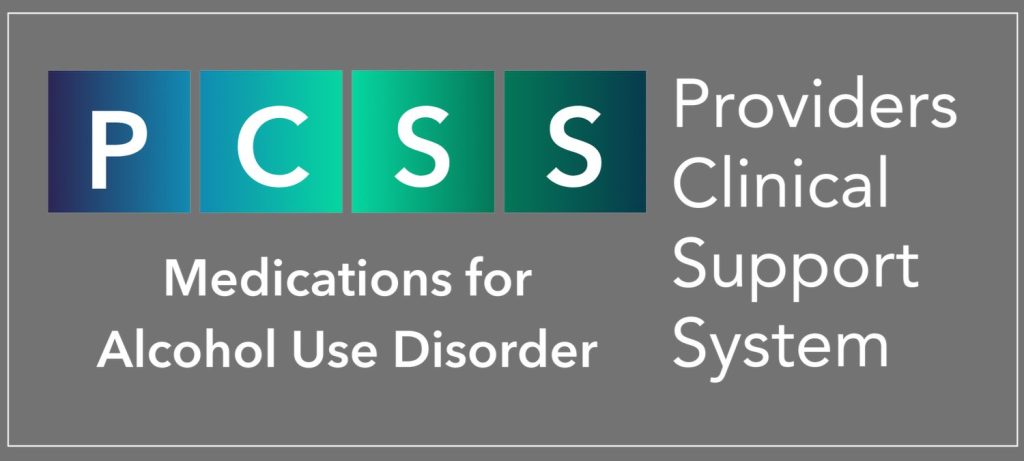New AMERSA Podcast Series in 2025
AMERSA is excited to announce two new new podcast series. Stigma and Substance Use: Rewriting the Narrative, will include eight 30 to 40-minute episodes sponsored by Provider’s Clinical Support System – Medication for Opioid Use Disorder (PCSS-MOUD). Innovation in Action: Building Stronger Communities will include six 30 to 40-minute episodes sponsored by the Opioid Response Network (ORN). Both series will feature subject matter experts across multiple disciplines.
Episodes of Stigma and Substance Use are available for streaming now!
Innovation in Action will be released on July 10!
Innovation in Action: Building Stronger Communities
Premiers July 10!
AMERSA is proud to announce a new podcast series highlighting cutting-edge programs and collaborative efforts supporting individuals and communities affected by substance use disorders. Featuring multidisciplinary teams, this podcast will explore innovative solutions with the potential to transform care and foster stronger, healthier communities.
Each episode will feature a follow-up live discussion, a week after publishing, highlighting an innovative program or collaboration featured in Innovation in Action: Building Stronger Communities. Each discussion will focus on developing practical strategies for adapting and implementing highlighted initiatives in communities to expand access to substance use care and improve health outcomes. Register for each discussion below.

Episode Available Thursday, July 10
Register Here to Join the Follow-up Discussion on Wednesday, July 16 at 9am PST/ 12pm EST.
Presenters:
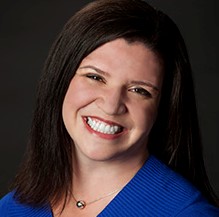
Jackie Slaugenhaupt
President, Teetotal Initiative
Jackie Slaugenhaupt is a nonprofit advocate and financial services professional with over 15 years of volunteer experience in nonprofit leadership and fundraising. She brings more than 25 years of experience in financial services and has held leadership roles at several Fortune 100 banks. A change and management expert with a specialty in data visualization, Jackie is also a person in recovery. Her lived experience informs her work as co-founder of Teetotal Initiative, a nonprofit focused on helping individuals sustain recovery through community and connection.

Lauren M. Broyles, PhD
Teetotal Initiative
Dr. Lauren Broyles serves as the Director of Creative Arts Programming for Teetotal Initiative. She is a woman in long term recovery, as well as a former addiction health services researcher and nurse. Lauren is a former addiction health services researcher, AMERSA Board Member, and Associate Editor for SAj. She currently works as a Senior Grant Writer & Editor in the Department of Psychiatry & Behavioral Health Sciences at Memorial Sloan Kettering Cancer Center.
Host:
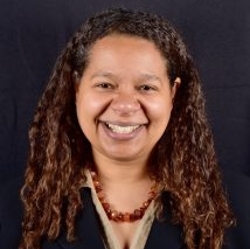
Holly Hagle, PhD
American Academy of Addiction Psychiatry
Dr. Holly Hagle serves as the Chief Learning and Research Officer for the American Academy of Addiction Psychiatry. Her expertise lies in applying Screening, Brief Intervention, and Referral to Treatment (SBIRT), with a particular focus on youth and young adults. Dr. Hagle has developed curricula addressing Adolescent Co-occurring Disorders, implementing SBIRT in youth settings, and creating educational content for transitional age youth. With over twenty years of experience as an addiction health services educator and researcher, her work spans treatment, recovery, and prevention, integrating applied research and education.
This episode will provide insight into an innovative and under-explored but critical component of recovery: the impact of social interaction on recovery capital ecosystems and prevention of return to use. Despite its importance, organizing substance-free events for the community as a recovery tool is underutilized, leaving a gap in day-to-day sober- and recovery-oriented quality of life. This episode highlights Teetotal Initiative’s unique, scalable model for sober-focused events, offering tangible ideas for complementing formal treatment with consistent, community-rooted programming that addresses return to use predictors, stigma, and supports long-term recovery success.
In this episode, we will:
- Identify three features that differentiate Teetotal Initiative’s model from other recovery support programs, communities, or services.
- Describe two ways Teetotal Initiative’s programming is strengthening both the recovery community and the broader community.
- Explain how Teetotal Initiative’s model and programming are helping to challenge or reduce self-stigma and social stigma around recovery.
Evaluation
We look forward to sharing Episode 1 of the “Innovation in Action: Building Stronger Communities” Podcast Series.
Please sign-up to our podcast mailing list above to be notified when the episode is release and to receive a link to complete SAMHSA’s required Training and Technical Assistance (TTA) GPRA Post-Event Form. This form will gather participant demographic information and satisfaction with the event. Responses are anonymous.
Sponsored by:
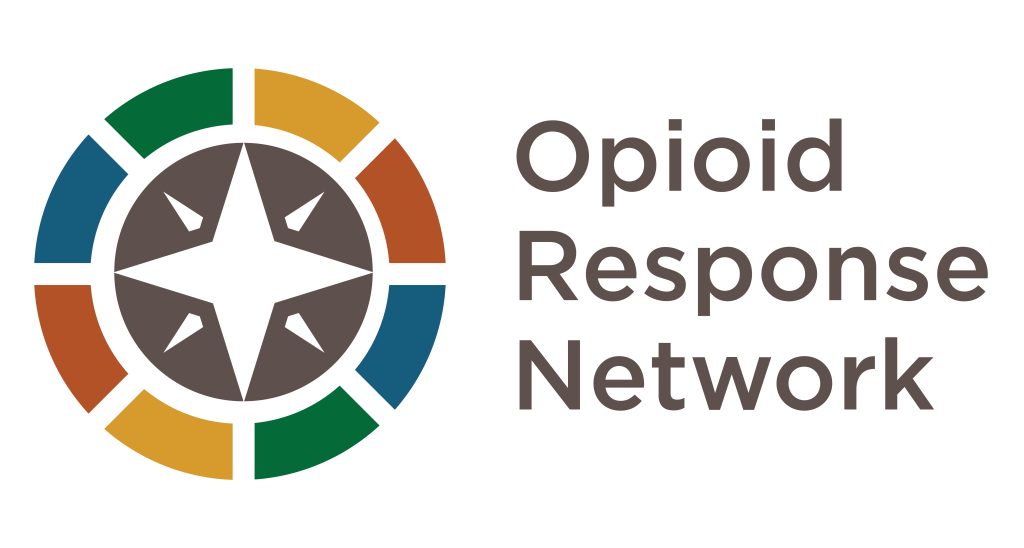
Funding for this initiative was made possible (in part) by grant no. 1H79TI088037 from SAMHSA. The views expressed in written conference materials or publications and by speakers and moderators do not necessarily reflect the official policies of the Department of Health and Human Services; nor does mention of trade names, commercial practices, or organizations imply endorsement by the U.S. Government.
Podcast DisclaimerThe information, opinions, and recommendations presented in this podcast are for general informational purposes only and should not be considered medical advice. This podcast is not intended to replace professional medical consultation, diagnosis, or treatment. Any reliance on the information provided in this podcast is at your own risk. While every effort is made to present accurate and up-to-date information, AMERSA makes no warranty, guarantee, or representation regarding the accuracy or sufficiency of the content featured.
The views expressed by guests are their own and do not necessarily reflect the views of AMERSA. Their appearance on this podcast does not imply an endorsement by AMERSA of them, their viewpoints, or any entity they represent. Unless explicitly stated otherwise, AMERSA does not endorse, approve, recommend, or certify any information, product, process, service, or organization mentioned in this podcast. Information from this podcast should not be referenced in any way that implies such approval or endorsement.
AMERSA expressly disclaims all liability for any direct, indirect, incidental, or other damages resulting from an individual’s use of, reference to, reliance on, or inability to use this podcast or the information presented in it.
Stigma and Substance Use: Rewriting the Narrative
AMERSA is proud to announce a new podcast series exploring the pervasive impact of stigma on individuals and communities affected by substance use disorders (SUD), featuring insights from experts, including individuals with lived experience and multidisciplinary professionals. Episodes will unpack the roots of stigma, its effects on care access and outcomes, and strategies to foster empathy, understanding, and inclusive support.exploring and highlighting the importance of harm reduction. The series, Stigma and Substance Use: Rewriting the Narrative, includes eight episodes sponsored by PCSS-MOUD, featuring subject matter experts across multiple disciplines.
Presenter:
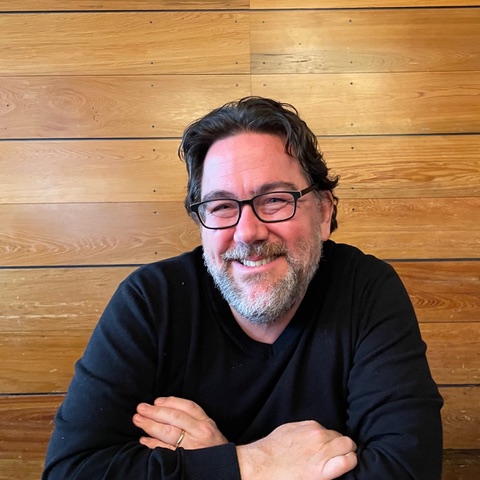
Joe Wright, MD
Department of Urban Studies and Planning, MIT; and Boston Health Care for the Homeless Program
Joe Wright is an internist and addiction medicine specialist who has worked at Boston Health Care for the Homeless Program since 2015, most of that time as the medical director of their office-based addiction treatment program. He’s recently stepped down from his administrative roles at BHCHP and has become a research affiliate at the Massachusetts Institute of Technology’s Department of Urban Studies and Planning, where he’s working on a history of Boston’s “Mass/Cass” neighborhood. He’s also a Town Meeting member and housing advocate in the town of Belmont.
Host:
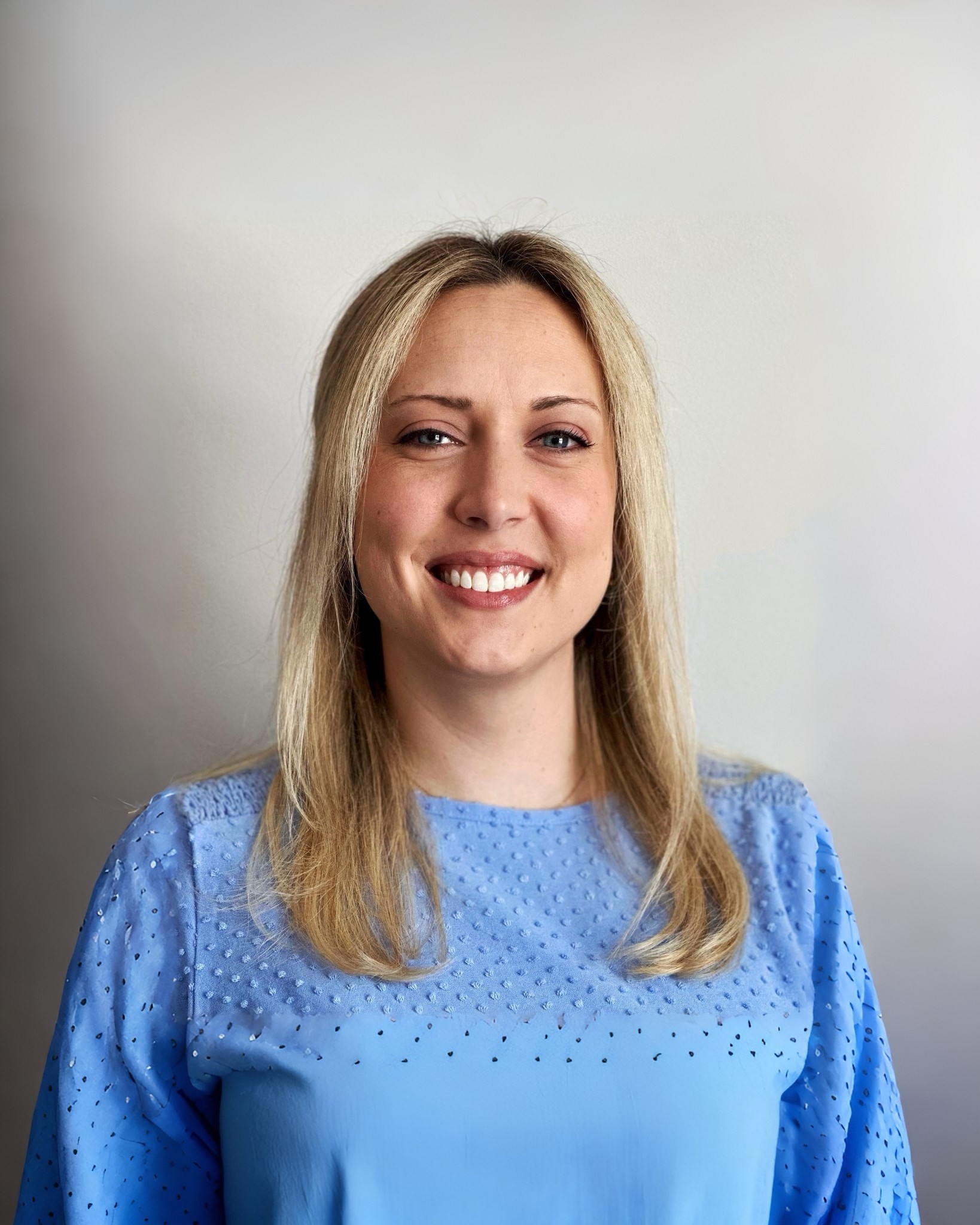
Allyson Pinkhover, MPH, CPhT, CHO
Brockton Neighborhood Health Center, Brockton, MA
Johns Hopkins Bloomberg School of Public Health, Baltimore, MD
Allyson Pinkhover is a public health practitioner focused in harm reduction and substance use and is the Director of Substance Use Services at Brockton Neighborhood Health Center. She is passionate about promoting the health and human rights of people who use drugs. Allyson completed her MPH in Community Health and Prevention at Drexel University and is a fifth-year DrPH candidate concentrating in Health Equity and Social Justice at the Johns Hopkins Bloomberg School of Public Health. She currently serves as the Chair of the Holbrook Board of Health.
This episode explores some of the ways that urban planning, zoning, policing, and the location of addiction services combine to create or enforce a geography of containment. In Boston, Dr. Wright argues, land prices and the politics of what another scholar describes as “complaint-oriented policing” led to a smaller and smaller area in which visible drug use and homelessness were tolerated, and services for people with substance use disorders were located. This kind of geography, variations of which can be seen in many cities and towns, can create both problems and opportunities for patients as well as complex challenges for substance use care and public health.
In this episode, we will:
- Understand the spatial relationships of drug use, addiction treatment services, and deliberately enforced “containment zones” as products of stigma.
- Recognize that the zoning, policing, and urban development strategies of drug containment can become a double-edged sword, providing certain kinds of safety for our patients and our work, and creating other kinds of problems for their well-being.
- Contrast these relationships with the spatial strategies of regulating other substance use and public health policy (i.e. alcohol use and alcohol users).
Evaluation
Thank you for listening to Episode 1 of the “Stigma and Substance Use: Rewriting the Narrative” Podcast Series.
Please sign-up to our podcast mailing list above to be notified when the episode is release and to receive a link to complete SAMHSA’s required Training and Technical Assistance (TTA) GPRA Post-Event Form. This form will gather participant demographic information and satisfaction with the event. Responses are anonymous.
Presenters:
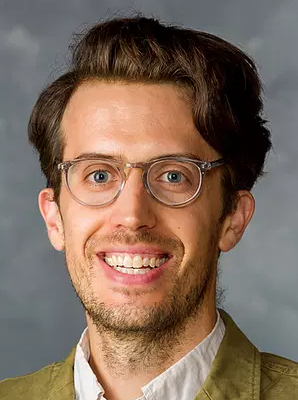
Devin Oller, MD, FACP, FASAM
University of Kentucky, Division of GIM
Dr Devin Oller is a primary care and addiction medicine physician at the University of Kentucky. He serves as a staff physician on the UK Addiction Consult and Education Service and directs the fourth year addiction medicine elective. He is also a Kentucky Colonel, which is a real thing!
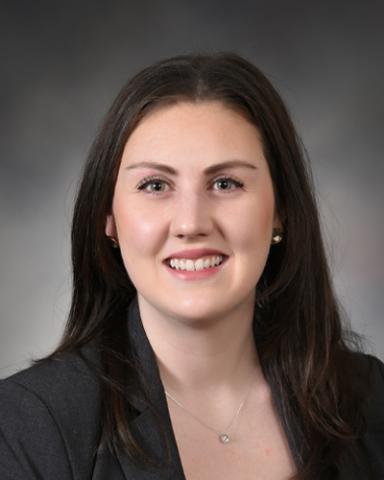
Kayla Strother, MSN, AGPCNP-C
University of Kentucky, Department of Internal Medicine
Kayla Strother is a nationally certified Advanced Practice Registered Nurse specializing in Adult-Geriatric Primary care. She is currently employed as an Advanced Practice Provider on the Addiction Consult and Education Services team at UK HealthCare in Lexington, Kentucky where she cares for patients in both outpatient and acute care inpatient settings.
Host:

Kate Roberts, PhD (Candidate), MA, MSW, LCSW
Bryn Mawr Graduate School of Social Work and Social Research/ Aurrera Health Group
Kate Roberts is a licensed clinical social worker and doctoral candidate in social work from Bryn Mawr College. Having a decade of experience working clinically in substance use treatment and harm reduction spaces, she is currently a Deputy Director of Behavioral Health Policy at Aurrera Health Group where she focuses on policy related to substance use.
This episode will explore the unique challenges faced by individuals with substance use disorder (SUD) in Appalachia, focusing on the ways stigma and healthcare access impact SUD outcomes in these communities. Starting with an examination of the historical events and media portrayals that have shaped perceptions of Appalachia, the session will proceed to highlight the key social, economic, and political drivers behind the SUD crisis in this region. Drawing from recent research and personal experience caring for this population, we will detail strategies for addressing stigma and delivering effective care for people living with SUD in Appalachia.
In this episode, we will:
- Review a framework for exploring Appalachian patients’ beliefs and knowledge about SUD.
- Examine patients’ experience within the larger narrative about SUD in Appalachian communities.
- Identify ways to address internalized stigma in healthcare settings and the community.
Evaluation
Thank you for listening to Episode 2 of the “Stigma and Substance Use: Rewriting the Narrative” Podcast Series.
Please sign-up to our podcast mailing list above to be notified when the episode is release and to receive a link to complete SAMHSA’s required Training and Technical Assistance (TTA) GPRA Post-Event Form. This form will gather participant demographic information and satisfaction with the event. Responses are anonymous.
Presenters:
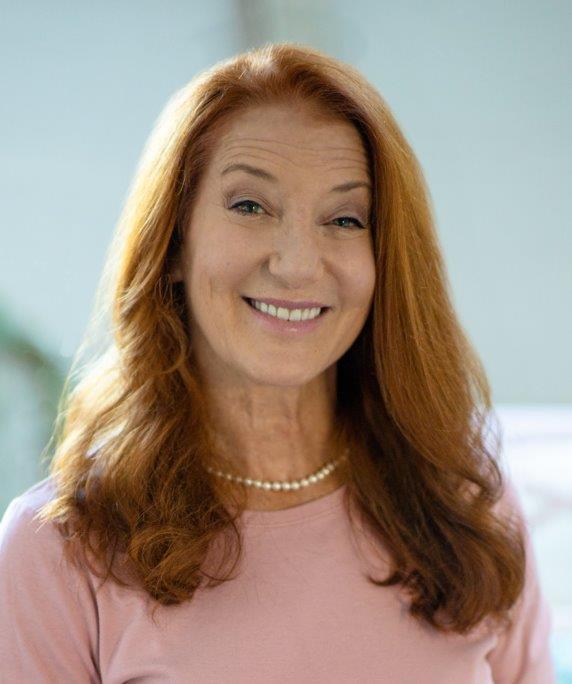
Siobhan Morse, MHSA, CRC, CAI, MAC
Universal Health Services
Siobhan Morse is Product Director for the Behavioral Health Division of UHS, a Fortune 300 healthcare company, with a focus on substance use and opioid use disorder product and program development and evaluation. Siobhan also serves on the National Advisory Board for the National Institute for Behavioral Health and REACH United, as well as participating in the Department of Justice Peer Workforce Workgroup. Siobhan has 19 years lived experience in recovery from substance use disorder and is trained as a peer support specialist.
Host:
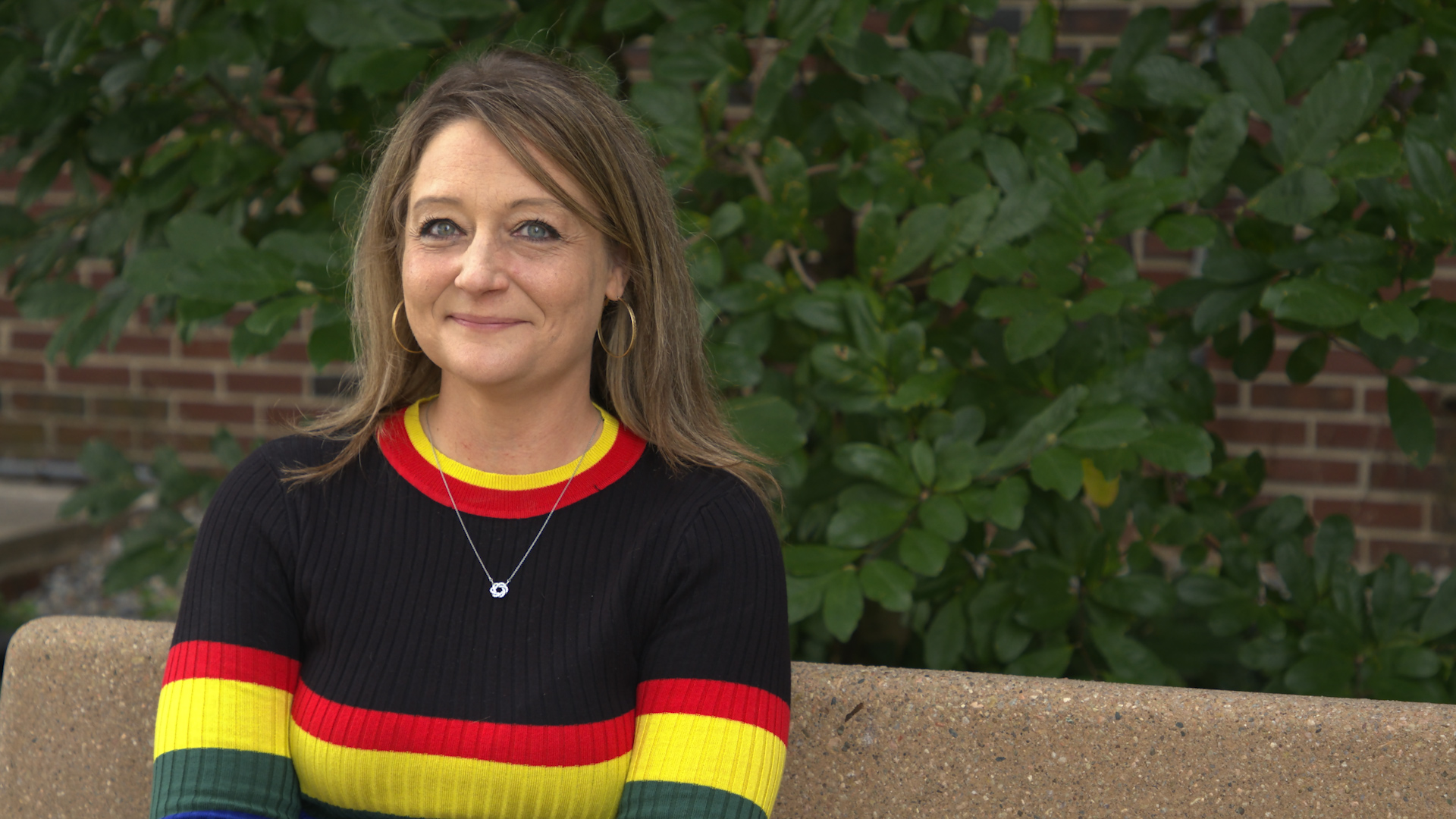
Nicole O’Donnell, BA, CRS
University of Pennsylvania
Nicole O’Donnell is a Certified Recovery Specialist, recognized by the Philadelphia Inquirer for excellence in patient care for her work at Penn Medicine’s Center for Addiction Medicine and Policy, which includes supporting patients at Penn Presbyterian, Pennsylvania Hospital, and the Hospital of the University of Penn. Ms. O’Donnell oversees the CareConnect Warmline, a low barrier and virtual buprenorphine bridge clinic, serving the Philadelphia area and surrounding counties connecting community members to evidence-based treatment.
Despite significant advancements in addiction treatment, stigma remains one of the greatest barriers to care for individuals struggling with substance use disorder (SUD). Among healthcare professionals, stigma can manifest in ways that impact patient outcomes, access to care, and overall recovery success. This episode will explore how leveraging peers—those with lived experience in recovery—can be a powerful tool in combating stigma in medical settings. The episode will discuss real-world applications of peer support, the latest statistics on stigma in healthcare, and actionable strategies for fostering a more compassionate approach to SUD treatment.
In this episode, we will:
- Review the reality of stigma and its impact on healthcare.
- Identify the role of peers in recovery and two major healthcare environments.
- Identify strategies for integrating peers into the workforce.
Evaluation
Thank you for listening to Episode 3 of the “Stigma and Substance Use: Rewriting the Narrative” Podcast Series.
Please sign-up to our podcast mailing list above to be notified when the episode is release and to receive a link to complete SAMHSA’s required Training and Technical Assistance (TTA) GPRA Post-Event Form. This form will gather participant demographic information and satisfaction with the event. Responses are anonymous.
Presenters:
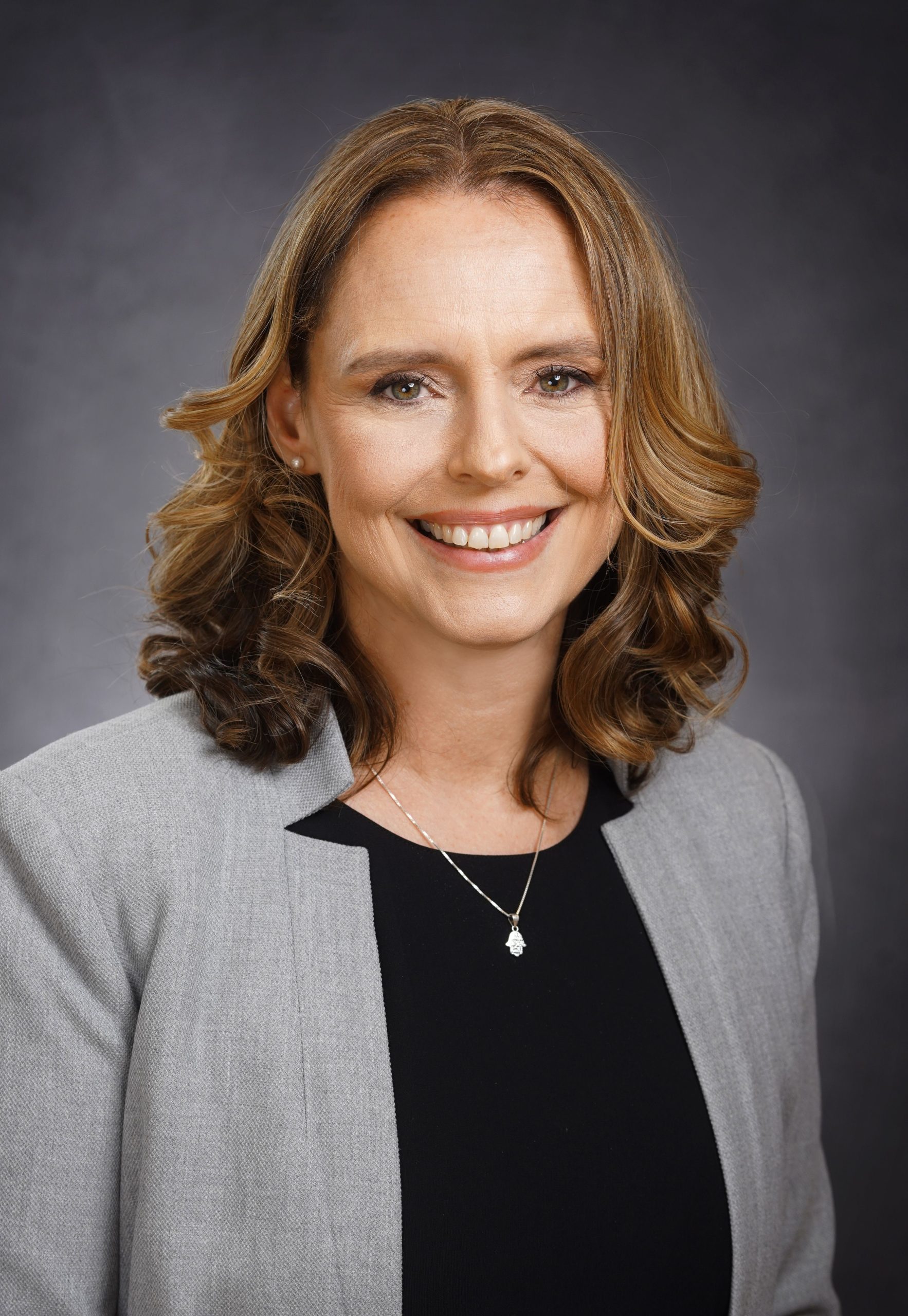
Rachel Haroz, MD, FAACT
Cooper University Health Care
Dr. Rachel Haroz is an emergency medicine, toxicology and addiction medicine physician in Camden, NJ focused on bringing innovative and low barrier access to care to vulnerable populations.
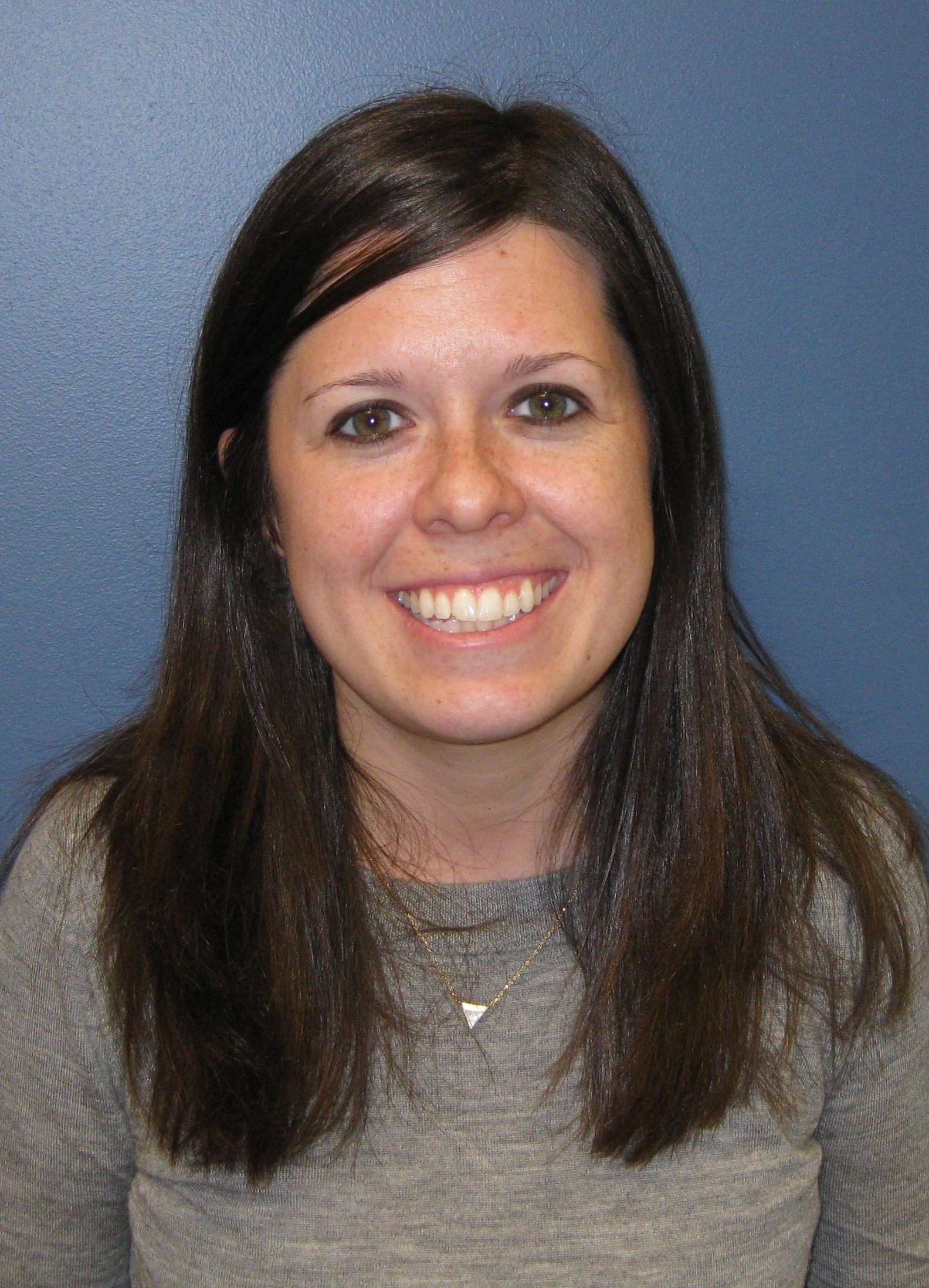
Jessica Heil, MS
Cooper University Health Care
Jessica Heil is a public health researcher specializing in addiction studies and health disparities. As Research Manager at Cooper University Health Care, she leads clinical research, supervises staff, and fosters community collaborations. She has extensive experience in opioid use disorder treatment and harm reduction, she is committed to advancing evidence-based healthcare interventions.
Host:
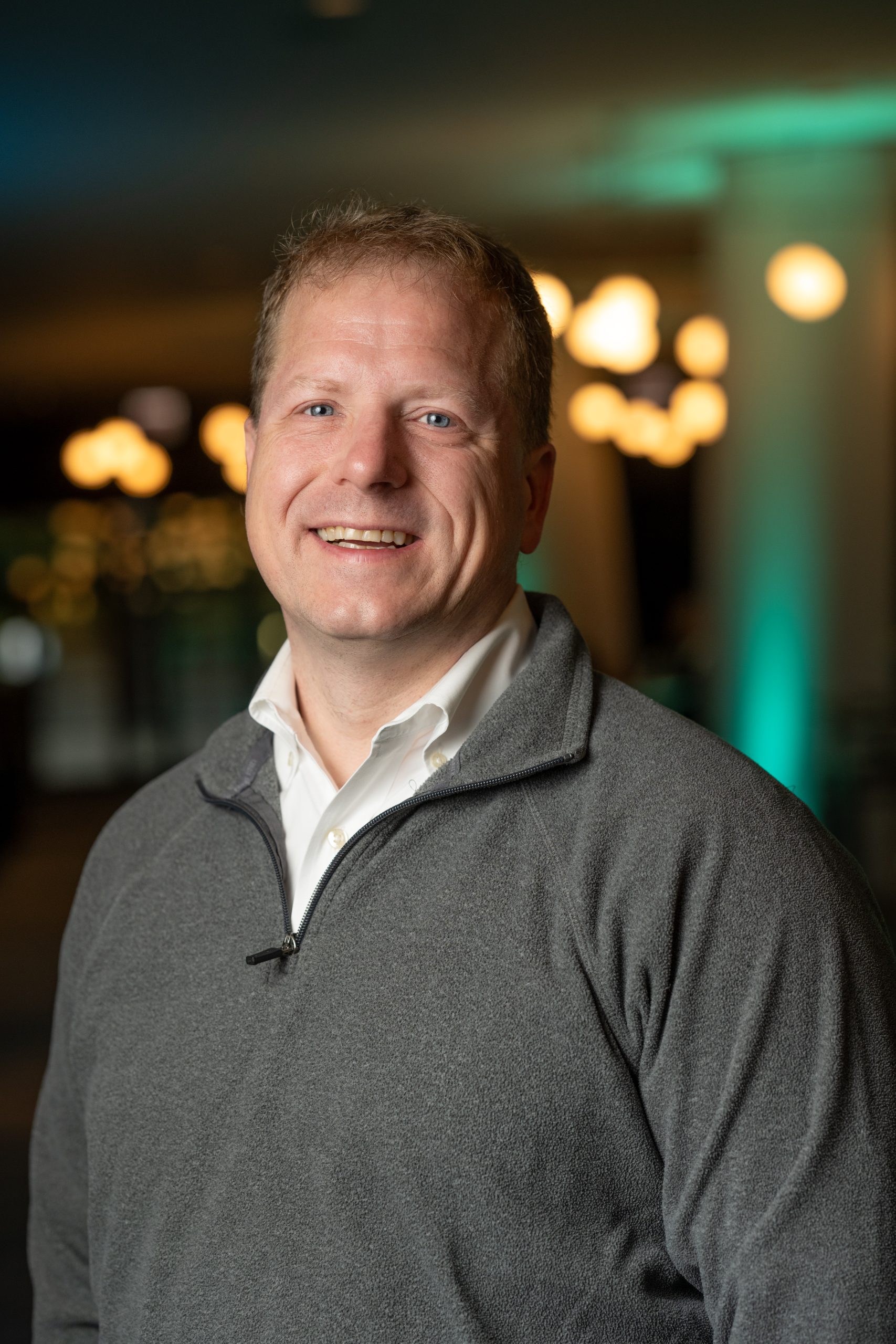
Jeffrey Bratberg, PharmD, FAPhA
The University of Rhode Island
Dr. Jeffrey Bratberg studies the essential and emerging roles community pharmacists play regarding opioid overdose response, harm reduction, and opioid use disorder treatment. He advocates for pharmacists’ expanded roles in medication access, public health promotion, and policy change through research, practice, and teaching.
Emergency Department Bridge Programs allow ED physicians to connect patients in the ED with comprehensive addiction care. While the direct benefits of bridge programs for patients with opioid use disorder are known, what’s less understood is how these programs affect the lives of the providers themselves. This episode explores some of the lesser known benefits of ED Bridge Programs including improving physicians’ lives and reducing stigma in health care settings.
In this episode, we will:
- ED bridge programs may require extra work, but this study demonstrates they make life for ED providers better.
- Much attention is paid to hard data and quantitative research, but qualitative studies can be persuasive as well.
- We all should acknowledge that people need to find meaning in their work and incentivize programs that generate that meaning.
Evaluation
Thank you for listening to Episode 4 of the “Stigma and Substance Use: Rewriting the Narrative” Podcast Series.
Please sign-up to our podcast mailing list above to be notified when the episode is release and to receive a link to complete SAMHSA’s required Training and Technical Assistance (TTA) GPRA Post-Event Form. This form will gather participant demographic information and satisfaction with the event. Responses are anonymous.
Presenters:

Michele Durham, M.Ed
BEAT AIDS Coalition Trust
Michele Durham is the 31 year CEO of BEAT AIDS, the largest, longest-lasting HIV/AIDS Services Organization in South Texas. She holds a Bachelors of Business Administration degree in accounting from Lamar University and a Master’s degree in psychological education from the University of Texas at San Antonio with an emphasis in guidance and counseling. She has been working in the field of substance use disorder as it intersects with HIV in the South for over 35 years.
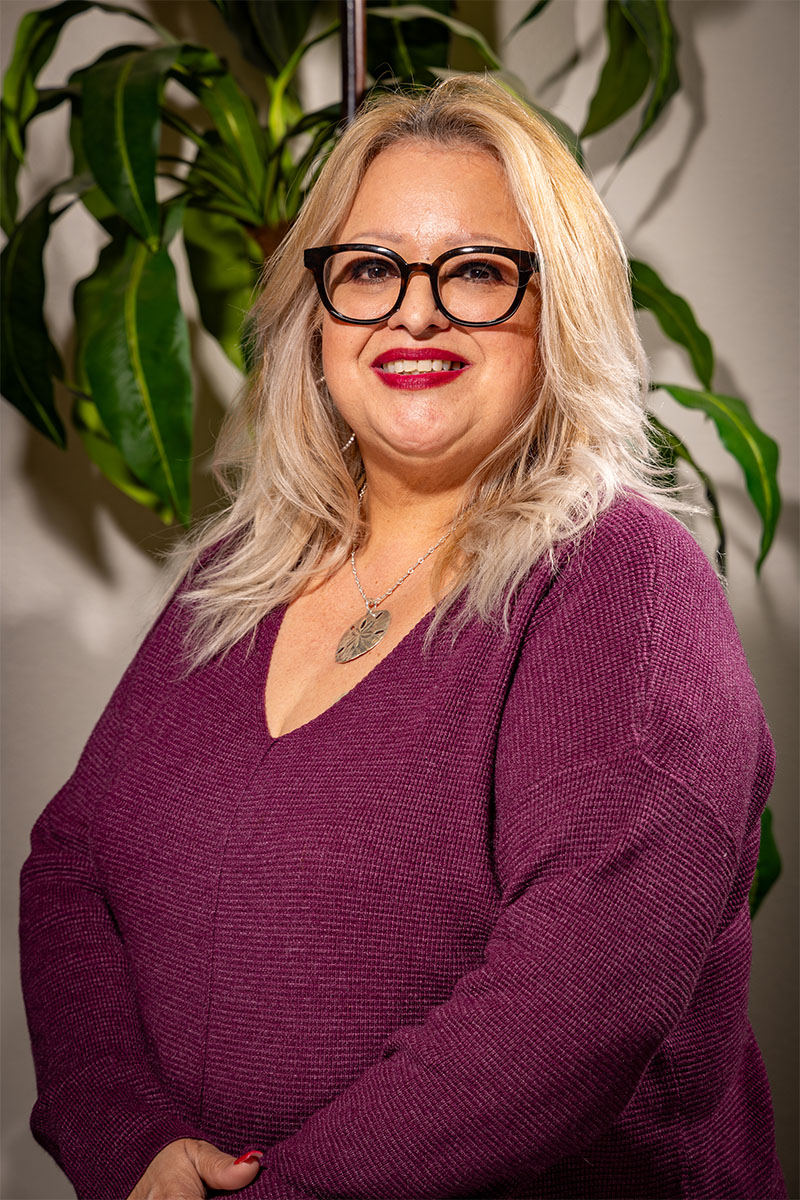
Cindi Salinas, Licensed Substanse Use Disorder Counselor
BEAT AIDS Coalition Trust
Cindi Salinas is a substance use disorder counselor in Texas. She is a graduate of Elmhurst College and the Institute of Chemical Dependency Studies. She has been working in the field of substance use disorder as a counselor for eight years and in direct care for four years. She also has unique insight as someone with lived experience.
Host:
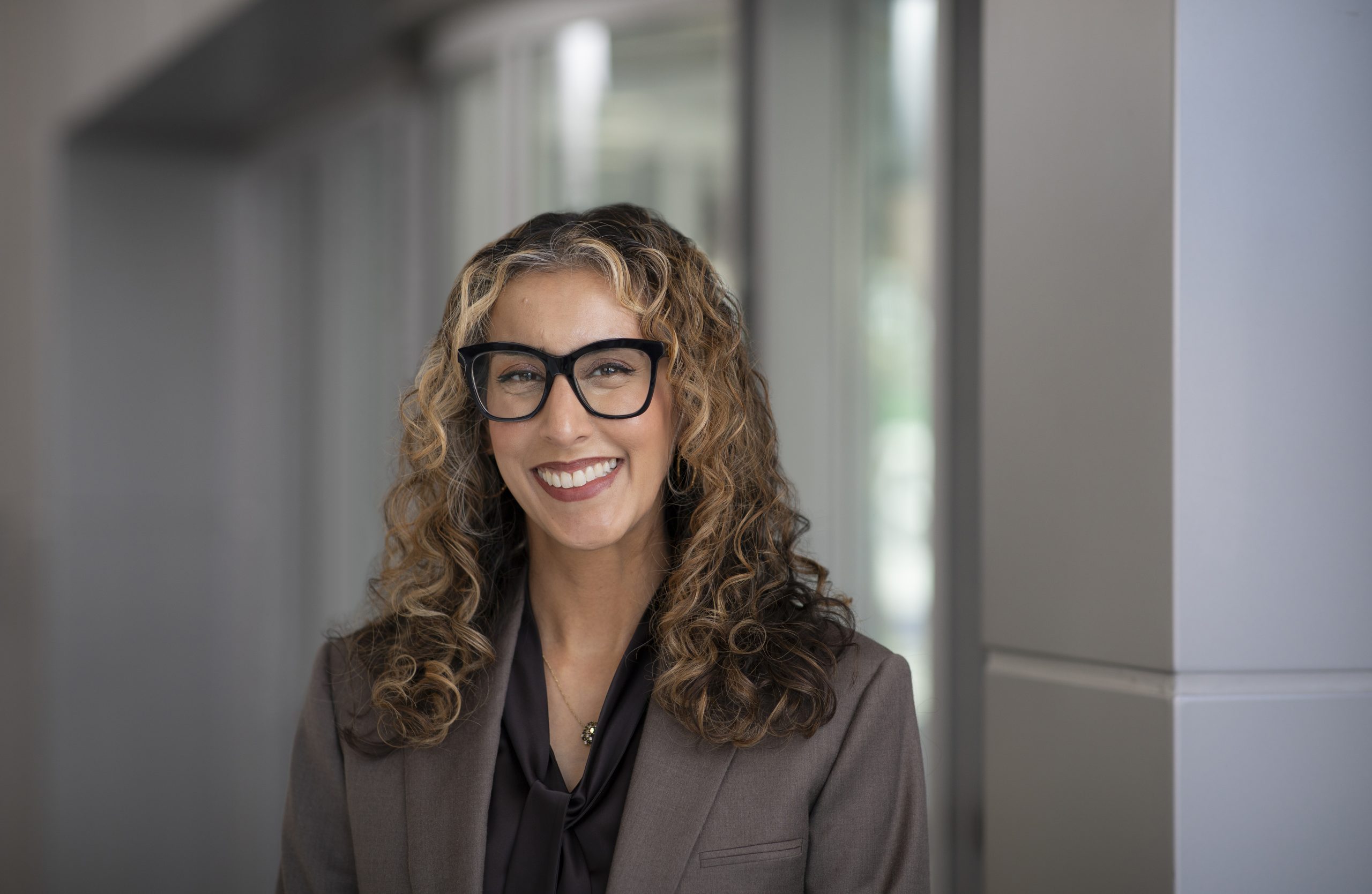
Deepika Slawek, MD, MPH, MS
Montefiore Medical Center and Albert Einstein College of Medicine
Dr. Deepika Slawek is an HIV primary care and addiction medicine physician and researcher practicing in the Bronx, NY. She attended University of Texas at Austin as an undergraduate and Texas A&M for medical school and then completed her medical training in New York State. She has been working in the field of HIV and addiction for over a decade.
This episode will discuss how stigma contributes to HIV acquisition, prevents people living with HIV from seeking and remaining in care, and effective, evidence-based strategies for mitigating stigma. The episode explore effective ways to reach, support, and treat individuals who use substances, who are at a high risk for acquiring HIV and, once acquired, falling out of care.
In this episode, we will:
- Analyze root-causes of HIV stigma;
- Explain the intersectionality of HIV risks and SUD;
- Identify evidence-based strategies for treating individuals with SUD who are also PLWH or at-risk.
Evaluation
Thank you for listening to Episode 5 of the “Stigma and Substance Use: Rewriting the Narrative” Podcast Series.
Please sign-up to our podcast mailing list above to be notified when the episode is release and to receive a link to complete SAMHSA’s required Training and Technical Assistance (TTA) GPRA Post-Event Form. This form will gather participant demographic information and satisfaction with the event. Responses are anonymous.
Presenters:

Meghann Perry, CARC certified Addiction Recovery Coach; RCPF Recovery Coach Professional
Meghann Perry Group
Meghann Perry, CARC, RCPF, is a Keynote Speaker, Educator and Addiction Recovery Coach Professional who has spent the last decade working in peer support, recovery advocacy and program design. She is best known for two groundbreaking programs: Recovery Storytelling and Embodied Storytelling and delivers high-impact presentations on storytelling as a tool for healing and advocacy for highly stigmatized conditions for organizations like NIH, NAADAC, HRSA, Peer Recovery Center of Excellence, and the Hazelden Foundation. Meghann identifies as a former drug user who passionately supports people across the full spectrum of substance use, harm reduction and recovery and leads a team of dedicated facilitators redefining education in the substance and mental health field.
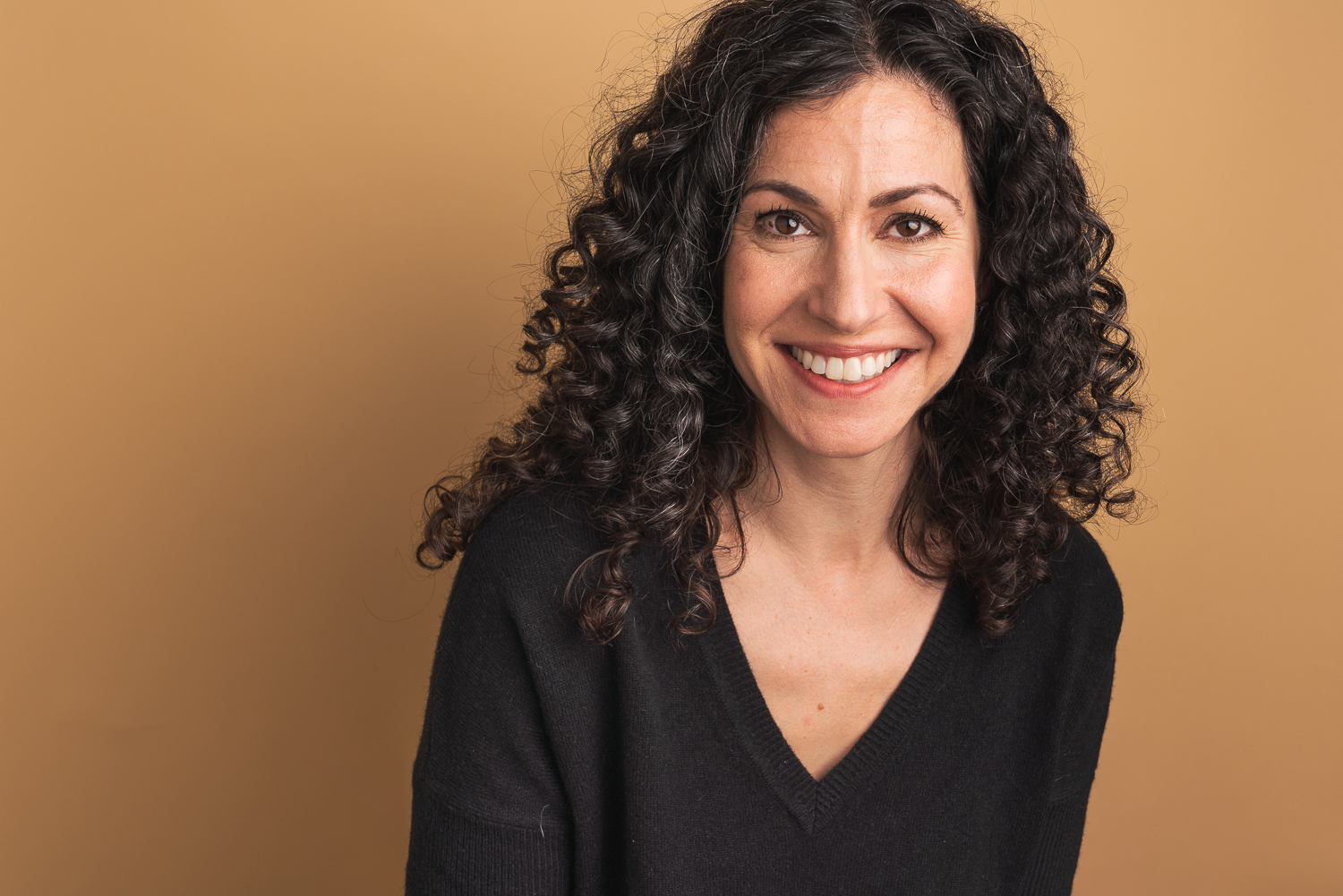
Dani Snyder-Young, PhD
Northeastern University
Dani Snyder-Young is Associate Professor of Theatre at Northeastern University. She led the NEA-funded Theatre participation and arts-integrated peer leadership in substance addiction recovery processes, which examines the role of theatre in supporting recovery from substance use disorder. Dani’s forthcoming book, Sticking Stigma: Affect, Performance, and the Movement of Social Norms explores how performances manipulate stigma to address social inequalities.
Host:
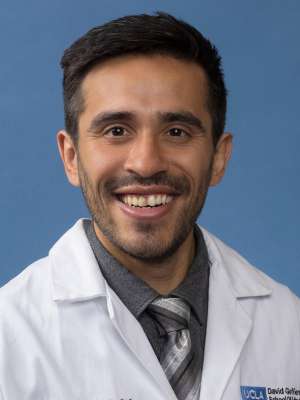
Felipe Vasudevan, MD, MSc
Montefiore Medical Center and Albert Einstein College of Medicine
Dr. Felipe Vasudevan completed an Internal Medicine & Addiction Medicine fellowship at NYU, and then ran a consult service at Woodhull Hospital in Brooklyn, NY before directing the Addiction Consult Service & Bridge Clinic at UCLA Hospital. His interests include reducing barriers to pharmacotherapy and addressing stigma in the hospital setting for people who use drugs and improving access and visibility to methadone and contingency management programs.
We’ve all absorbed the War on Drugs narrative—but even well-intended stories about substance use often reinforce stigma. In this episode, Meghann Perry and and Dr. Dani Snyder-Young explore how internalized shame shapes personal and public storytelling, influencing care access and policy. They discuss research and applied storytelling techniques that shift the dominant narrative, promoting dignity and inclusion for people with lived and living experience of substance use. By embracing strength-based storytelling, we can rewrite the script—reducing stigma, fostering resilience, and broadening pathways to well-being. Tune in to learn how you can help change the conversation around substance use to prioritize dignity for people who use and used drugs.
In this episode, we will:
- Describe the mechanism of belonging as it relates to storytelling, stigma and social support
- Identify the binary effect of redemption stories in the dominant narrative of substance use and recovery in the United States and how that impacts care for individuals
- Name and apply three characteristics of strength-based storytelling in their personal or professional role
Evaluation
Thank you for listening to Episode 6 of the “Stigma and Substance Use: Rewriting the Narrative” Podcast Series.
Please sign-up to our podcast mailing list above to be notified when the episode is release and to receive a link to complete SAMHSA’s required Training and Technical Assistance (TTA) GPRA Post-Event Form. This form will gather participant demographic information and satisfaction with the event. Responses are anonymous.
Presenters:
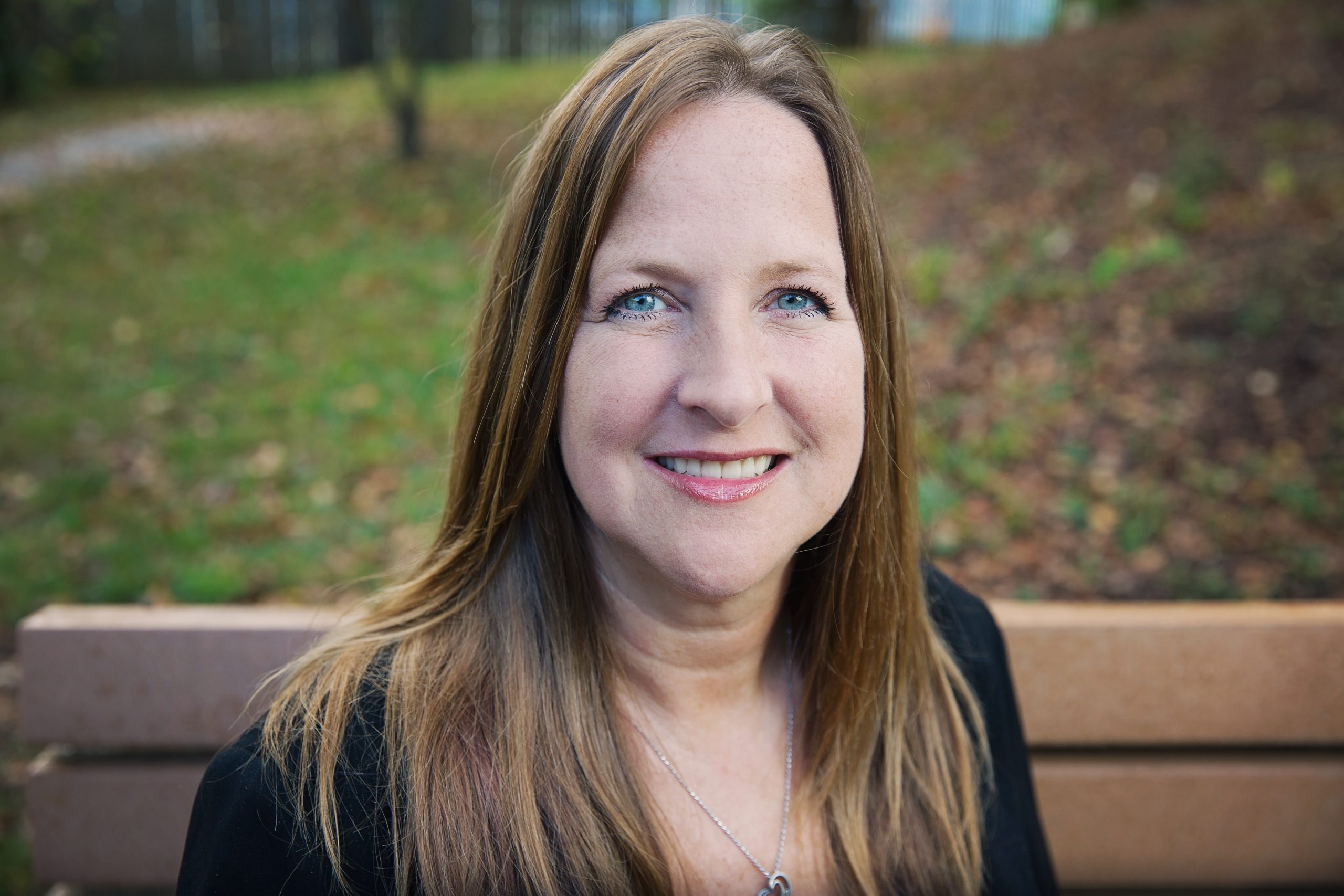
Michelle Kavouras, CDCS, NCAC I, NCRS
SpheraNova, EMPOWER, Sitka Counseling
Michelle Kavouras is a highly credentialed leader in addiction counseling, recovery support, and harm reduction with nearly a decade of experience training professionals in evidence-based care. She serves on multiple boards and commissions, including the NAADAC National Certification Commission for Addiction Professionals and Sitka’s Health Needs and Human Services Commission, and co-chairs the Southeast Alaska Alcohol Alliance. A dedicated harm reduction advocate, she collaborates on patient-centered research and works to advance stigma-free, person-centered care.
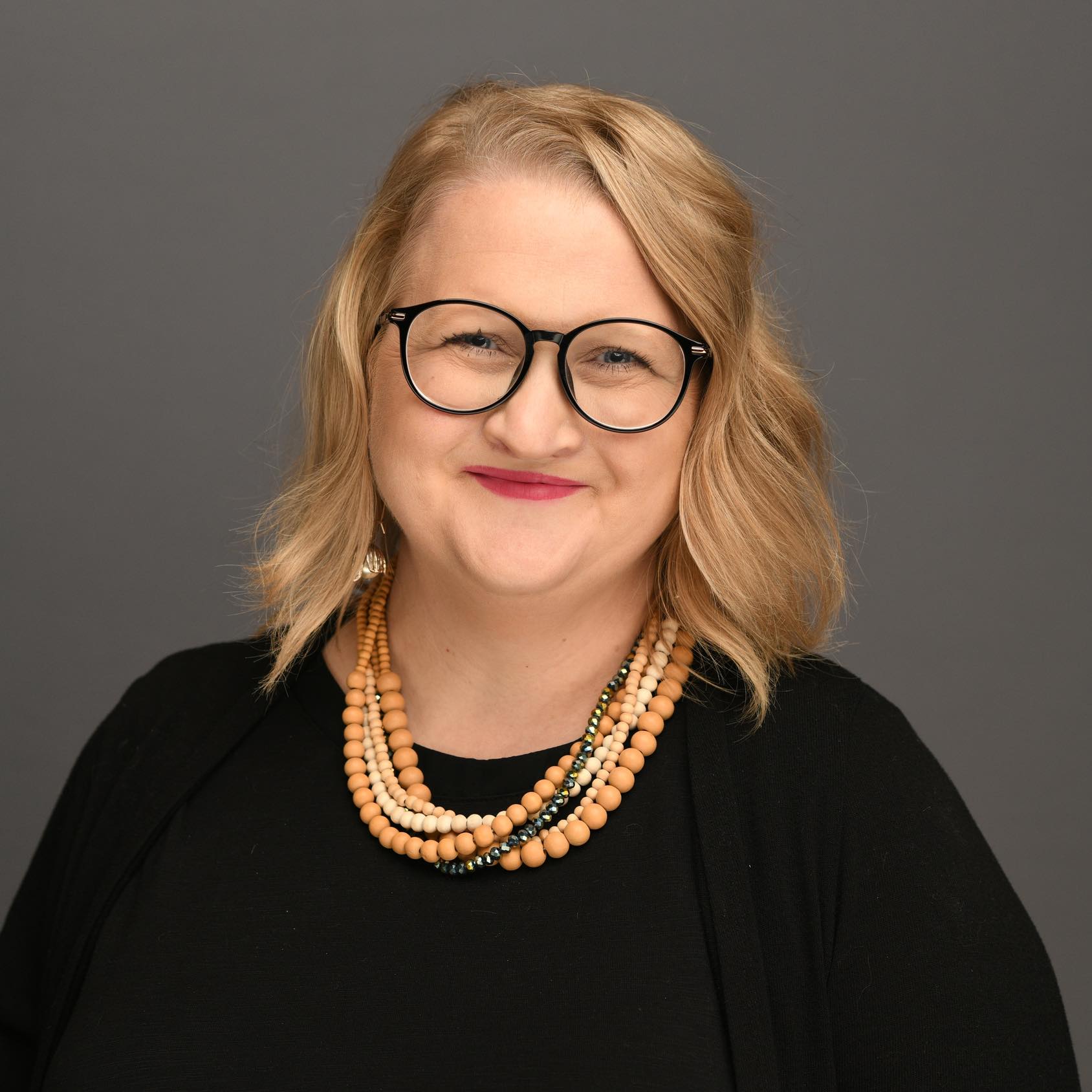
Nichole Nidey, PhD
University of Iowa College of Public Health
Dr. Nichole Nidey is a maternal-child health epidemiologist and assistant professor at the University of Iowa College of Public Health. Nidey founded the EMPOWER Project in 2019, which is a patient-centered collaborative of persons with lived experience of substance use during pregnancy. Through the EMPOWER Project, Nidey leads patient-centered research focused on improving healthcare for pregnant and postpartum individuals with substance use.
Host:
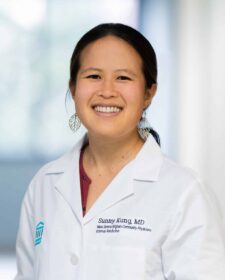
Sunny Kung, MD, FACP
Mass General Brigham Community Physicians
Sunny Kung, MD is the medical director of the Mass General Brigham Merrimack Valley Bridge Clinic in Haverhill, MA. She completed her addiction medicine fellowship at Massachusetts General Hospital and her internal medicine residency at Brigham and Women’s Hospital in Boston, MA. She is a dedicated primary care and addiction medicine clinician who specializes in caring for people who use substances, those who are unhoused, immigrants, people with limited English proficiency, and other marginalized folks. As a staunch believer in harm reduction, she believes in allowing people to live their lives with dignity and safety.
In this episode, we dive into why language in client and patient records matters—and how it can shape care experiences. We explore practical ways to use non-stigmatizing language in health records and discuss the role of electronic health record (EHR) in shaping documentation. Who designs these systems, and how can they be improved? We also examine real-world case scenarios where stigmatizing notes have had lasting impacts on individuals. Whether you’re a provider, policymaker, or advocate, this episode offers insight into making health records more respectful, equitable, and aligned with patient-centered care.
In this episode, we will:
- Recognize how the electronic health record (EHR) can negatively impact individuals.
- Implement changes to existing EHR systems to incorporate strength-based, person-first, and non-stigmatizing language.
- Reflect on the importance of self-awareness when writing notes and consider the potential uses and impacts of those records.
Evaluation
Thank you for listening to Episode 7 of the “Stigma and Substance Use: Rewriting the Narrative” Podcast Series.
Please sign-up to our podcast mailing list above to be notified when the episode is release and to receive a link to complete SAMHSA’s required Training and Technical Assistance (TTA) GPRA Post-Event Form. This form will gather participant demographic information and satisfaction with the event. Responses are anonymous.
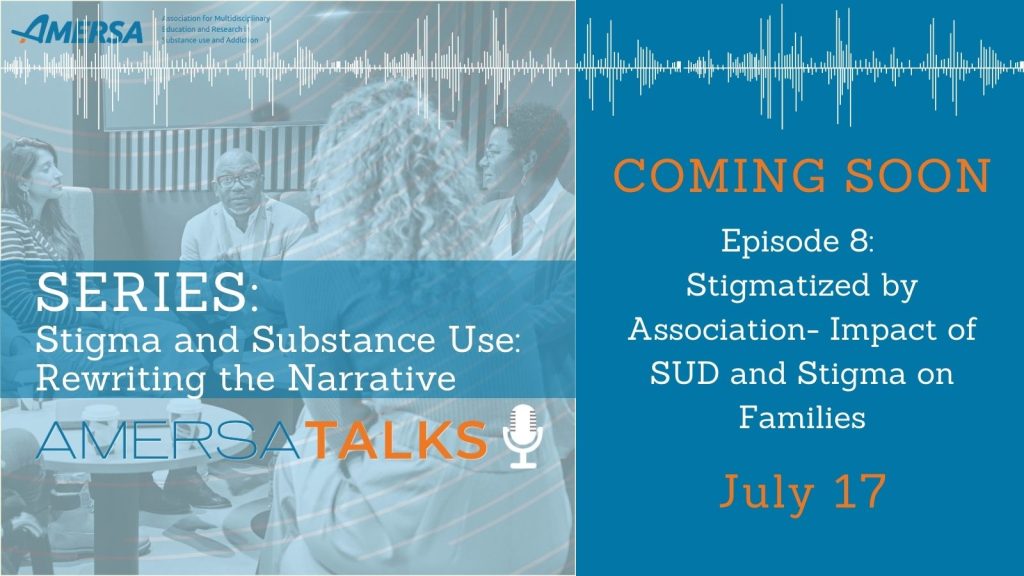
Presenters:
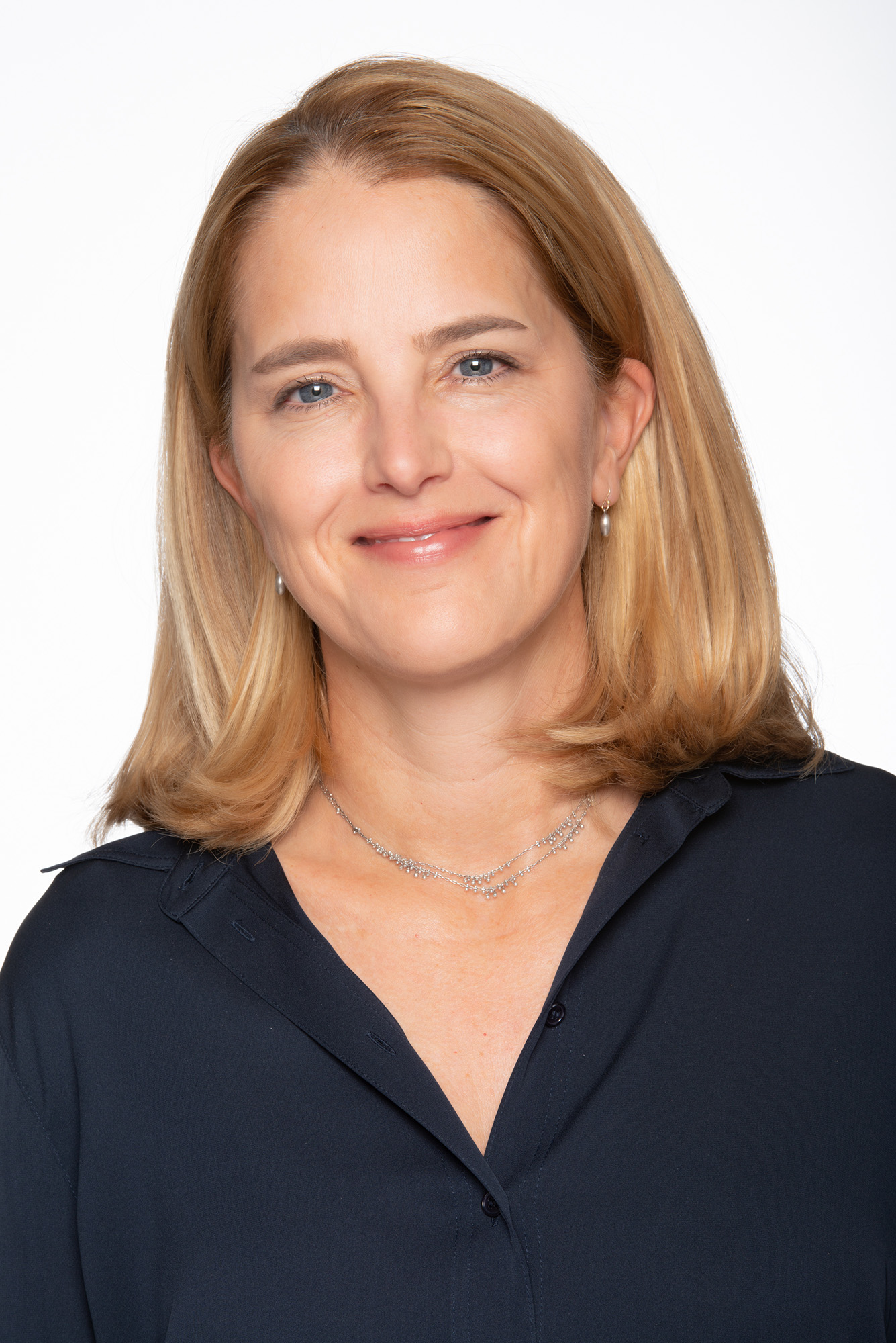
Carrie Wilkens, PhD
CMC: Foundation for Change, Center for Motivation and Change
Dr. Carrie Wilkens is a psychologist with over 20 years of experience in substance use, trauma treatment, and working with families of those struggling with substance use. She is the Co-Founder and President of the non-profit, CMC:Foundation for Change, and Co-Founder of the Center for Motivation and Change treatment network and the co-author of the award-winning books “Beyond Addiction: How Science and Kindness Help People Change” and “The Beyond Addiction Workbook for Family and Friends,” establishing her as a leader driving change in the field of addiction treatment.

Jeffrey Foote, PhD
CMC: Foundation for Change, Center for Motivation and Change
Dr. Jeff Foote is a psychologist and nationally-recognized clinical researcher with over 30 years of experience in evidence-based treatment for substance use disorders and trauma. He has been driving change in the field of addiction treatment as Co-President and CEO of CMC:Foundation for Change, Co-Founder of the Center for Motivation and Change and co-author of the award-winning books “Beyond Addiction: How Science and Kindness Help People Change” and “The Beyond Addiction Workbook for Family and Friends.”
Host:
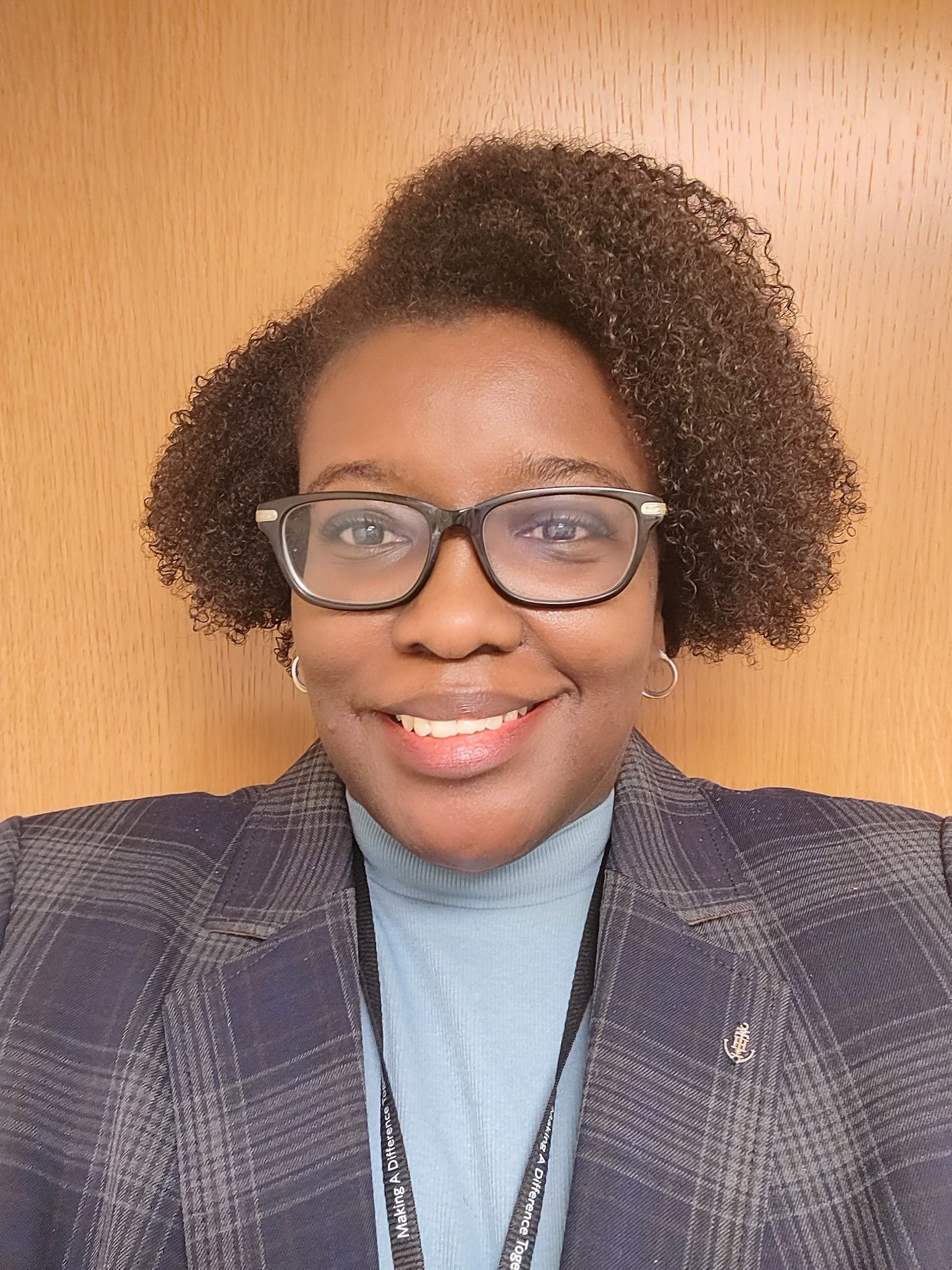
Brandee Madden, DNP, PMHNP-BC
Vanderbilt University School of Nursing
Dr. Brandee Madden is an Assistant Professor at Vanderbilt University School of Nursing. She is an experienced nursing educator and psychiatric mental health nurse practitioner who has provided treatment for mental health and substance use disorders in the community for over 15 years. Her clinical expertise is in the treatment of tobacco use in individuals with mental health and substance use disorders.
This episode explores the “contagious” nature of stigma in substance use disorders (SUDs), revealing how shame and discrimination spread beyond the 45-50 million Americans with SUDs to affect an estimated 45-300 million family members. While stigma’s impact on individuals with SUDs is well-documented, this conversation spotlights how families become “stigmatized by association,” driving them “underground” and leading to isolation, delayed help-seeking, compromised mental health, strained relationships, and poorer recovery outcomes for the entire family system.
In this episode, we will:
- Identify at least three ways stigma impacts family members of individuals with substance use disorders, including specific effects on mental/physical health, help-seeking behaviors, and family dynamics.
- Analyze how “stigma by association” creates unique barriers for families in accessing support and contributing to their loved one’s change process.
- Apply evidence-based communication strategies to reduce stigma when interacting with families affected by substance use disorders in professional or community settings.
Evaluation
We look forward to sharing Episode 8 of the “Stigma and Substance Use: Rewriting the Narrative” Podcast Series.
Please sign-up to our podcast mailing list above to be notified when the episode is release and to receive a link to complete SAMHSA’s required Training and Technical Assistance (TTA) GPRA Post-Event Form. This form will gather participant demographic information and satisfaction with the event. Responses are anonymous.
Sponsored by:
Funding for this initiative was made possible by cooperative agreement no. 1H79TI086770 from SAMHSA. The views expressed in written conference materials or publications and by speakers and moderators do not necessarily reflect the official policies of the Department of Health and Human Services; nor does mention of trade names, commercial practices, or organizations imply endorsement by the U.S. Government.
Podcast DisclaimerThe information, opinions, and recommendations presented in this podcast are for general informational purposes only and should not be considered medical advice. This podcast is not intended to replace professional medical consultation, diagnosis, or treatment. Any reliance on the information provided in this podcast is at your own risk. While every effort is made to present accurate and up-to-date information, AMERSA makes no warranty, guarantee, or representation regarding the accuracy or sufficiency of the content featured.
The views expressed by guests are their own and do not necessarily reflect the views of AMERSA. Their appearance on this podcast does not imply an endorsement by AMERSA of them, their viewpoints, or any entity they represent. Unless explicitly stated otherwise, AMERSA does not endorse, approve, recommend, or certify any information, product, process, service, or organization mentioned in this podcast. Information from this podcast should not be referenced in any way that implies such approval or endorsement.
AMERSA expressly disclaims all liability for any direct, indirect, incidental, or other damages resulting from an individual’s use of, reference to, reliance on, or inability to use this podcast or the information presented in it.
Harm Reduction: Compassionate Care for People who use Drugs
AMERSA is proud to announce a new podcast series exploring and highlighting the importance of harm reduction. The series, Harm Reduction: Compassionate Care for People who use Drugs, includes eight 30-minute episodes sponsored by PCSS-MOUD and hosted by AMERSA members, featuring subject matter experts across multiple disciplines.
Presenters:
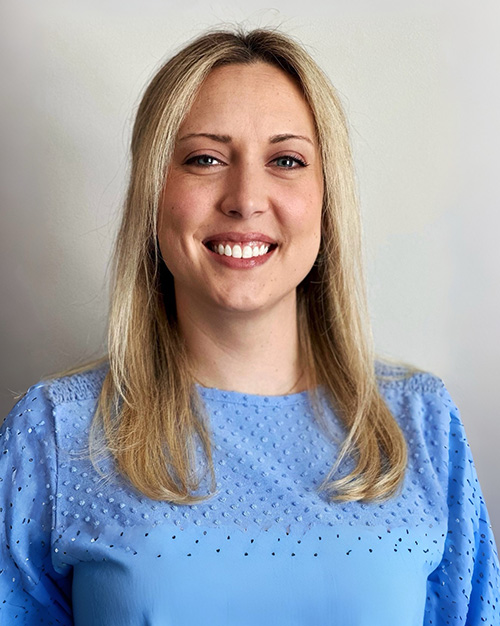
Allyson Pinkhover, MPH, CPhT, CHO
Brockton Neighborhood Health Center, Brockton, MA
Johns Hopkins Bloomberg School of Public Health, Baltimore, MD
Allyson Pinkhover is a public health practitioner focused in harm reduction and substance use and is the Director of Substance Use Services at Brockton Neighborhood Health Center. She is passionate about
promoting the health and human rights of people who use drugs. Allyson completed her MPH in Community Health and Prevention at Drexel University and is a fourth year DrPH student concentrating in Health Equity and Social Justice at the Johns Hopkins Bloomberg School of Public Health. She currently serves as the Chair of the Holbrook Board of Health.
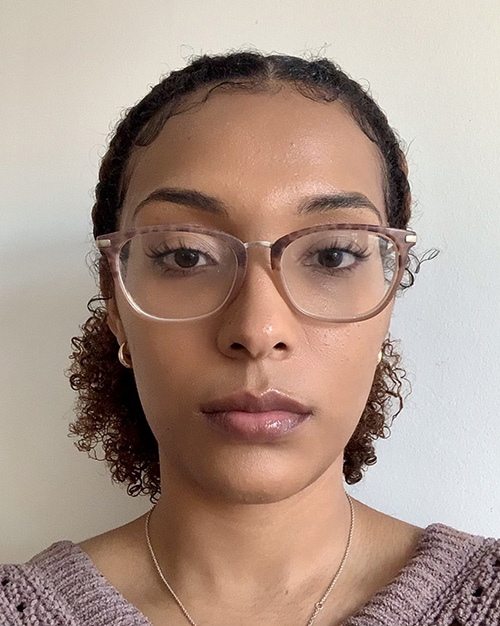
Darlene Andrade Fonseca, BS
Brockton Neighborhood Health Center, Brockton, MA
Massachusetts College of Pharmacy and Health Sciences, Worcester, MA
Darlene Andrade Fonseca is a Drug Checking Technician at Brockton Neighborhood Health Center. She is passionate about promoting the health and safety of people who use drugs by providing accurate information about their drug supply so they can make educated decisions. She completed her Bachelor of Science in Biology from Bridgewater State University and is a Physician Assistant student at Massachusetts College of Pharmacy and Health Sciences. Darlene hopes to work in Family Medicine and provide substance use care as a PA. She is fluent in Cape Verdean Creole and Portuguese.
Host:

Joe Wright, MD
Boston Health Care for the Homeless Program, Boston, MA
Joe Wright is an addiction medicine and internal medicine physician, and the Director of Addiction Treatment at Boston Health Care for the Homeless Program. He spent the 1990s in San Francisco as a community organizer and community educator for HIV prevention; then, after working in an immunology lab at the National Institutes of Health, attended Harvard Medical School. He trained in internal medicine, did additional training in HIV medicine, and then worked as an attending, at Beth Israel Deaconess Medical Center in Boston. He came to BHCHP in 2015 in order to better respond to the overdose crisis. At BHCHP Joe has worked in a variety of outreach and continuity clinic settings, but his primary focus has been in increasing access to buprenorphine. Recent research has shown that patient mortality in BHCHP’s patient population is driven by overdose; and that same-month engagement in BHCHP’s low-barrier buprenorphine access program is associated with 66% lower mortality.
In this episode, we will:
- Identify three methods of drug checking (immunoassay test strips, FTIR, and GC-MS), including their strengths and limitations.
- Recognize funding sources that can support advanced drug checking equipment and services.
- Interpret state-level policies that facilitate or prohibit drug checking services and align them with advocacy opportunities.
- Cite examples of drug checking’s role in individualizing harm reduction education, participant autonomy, and informing clinical practice.
This episode highlights how community-based advanced drug checking supports people who use drugs, harm reduction staff, and clinical providers. Hear from Darlene Andrade Fonseca and Allyson Pinkhover of Brockton Neighborhood Health Center about their work implementing drug checking with real-time FTIR technology, together with other tools. Alongside host Dr. Joe Wright of Boston Health Care for the Homeless Program, the trio discusses how advanced drug checking promotes autonomy for program participants and helps both harm reduction staff and clinical providers to better individualize the services they provide.
Evaluation
Thank you for listening to Episode 1 of the “Harm Reduction: Compassionate Care for People Who Use Drugs” Podcast Series. Please complete SAMHSA’s required Training and Technical Assistance (TTA) GPRA Post-Event Form. This form will gather participant demographic information and satisfaction with the event. Responses are anonymous.
Presenters:

Marlene Martin, MD
Associate Professor, University of California, San Francisco
Director of Addiction Care Team, San Francisco General Hospital
Director of Addiction Initiatives, Latinx Center of Excellence
Marlene Martin, MD, is an Associate Professor at UCSF and Director of the Addiction Care Team (ACT) at San Francisco General Hospital (SFGH). ACT is an interprofessional consult service that provides compassionate care focused on harm reduction, evidence-based treatment, and linkage to care for patients with substance use disorders. Marlene is board certified in internal medicine and addiction medicine. Drawn to medicine to address health inequities and social injustices, her interests lie in systems improvement and innovation with a focus on addiction, community partnerships, Latine health, and care transitions.
Marlene’s community work is through partnerships with community-based organizations as Director of Addiction Initiatives for the UCSF Latinx Center of Excellence (LCOE). Marlene partnered with Latine community-based organizations to codevelop, implement, and evaluate a promotor/community health worker Program for Education in Drugs and Alcohol for Latine (PEDAL). PEDAL aims to empower promotores to community about substance use, recognize unhealthy use, and connect Latine community members to addiction services through a culturally-centered approach.

Kimberly Sue, MD, PhD
Assistant Professor of Medicine (General Internal Medicine), Yale School of Medicine
Dr. Kimberly Sue is an Assistant Professor of Medicine with the Program in Addiction Medicine (Division of General Internal Medicine) at Yale University School of Medicine. She is the former Medical Director of the National Harm Reduction Coalition, New York, NY, which strives to improve the health and wellbeing of people who use drugs. Currently, she serves as an Attending Physician at the Central Medical Unit, APT Foundation, which provides primary care to patients receiving methadone and other substance use treatment services and supervises fellows and trainees within the Yale Addiction Medicine Fellowship program. She also is an Attending Physician on the hospital-based Yale Addiction Medicine Consult Service. She also holds board certification in both Internal Medicine and Addiction Medicine. Dr. Sue trained at Harvard’s MD-PhD Social Science Program, and has a PhD in sociocultural anthropology. Her book, Getting Wrecked: Women, Incarceration, and the American Opioid Crisis (2019), is based on her research on women with opioid use disorder in Massachusetts prison and jails. Her current research interests include harm reduction, stigma, gender/women and substance use, and overdose response strategies on local, state, and federal levels.
Host:

Amelia Goff, NP
Assistant Professor, Oregon Health & Science University, Portland Oregon
Improving Addiction Care Team (IMPACT), HRBR Clinic
Amelia Goff, NP is an Assistant Professor of medicine at Oregon Health & Science University where she works on the multi-disciplinary hospital addiction consult service, Improving Addiction Care Team (IMPACT) and in the low-barrier addiction medicine clinic, Harm Reduction and Bridges to Care (HRBR), serving patients across Oregon’s rural and urban communities. Her particular interest is improving healthcare systems to increase access to evidenced-based addiction care, including integration of harm reduction and overdose prevention services. Amelia also serves as faculty for an inter-professional “Substance Use Disorder in Hospital Care” tele-mentoring program (ECHO) that supports hospital clinicians across Oregon and the US to deliver best practices in addiction care and is a sub-investigator on a national NIH-funded study, working with others to disseminate hospital-based opioid treatment across US hospitals.
In this episode, we will:
- Describe strategies and steps to gain institutional support for harm reduction interventions
- Identify potential challenges when implementing HR interventions, and ways to address these challenges
- Describe how integrating HR into standard addictions care in the hospital impacts patient and staff experiences & outcomes
Hospitalization is a known opportunity to offer addiction services, including harm reduction. The philosophy of harm reduction and harm reduction supplies can be incorporated into healthcare settings. We describe two approaches to implementing harm reduction in a hospital setting, with a focus on obtaining support, implementation, challenges, and lessons learned. The two resources presenters wished to share with listeners can be found at: lawatlas.org & nextdistro.org .
Evaluation
Thank you for listening to Episode 2 of the “Harm Reduction: Compassionate Care for People Who Use Drugs” Podcast Series. Please complete SAMHSA’s required Training and Technical Assistance (TTA) GPRA Post-Event Form. This form will gather participant demographic information and satisfaction with the event. Responses are anonymous.
Presenters

Sophie Zhai
B.A. Public Health – University of California, Berkeley Patient Navigator, Addiction Care Team at UCSF
Sophie Zhai grew up in the Bay Area and obtained her degree in public health at UC Berkeley. She developed an early interest in community-based care, working for several years on street medicine teams to provide health services directly at syringe exchanges and encampments for the homeless. Most recently, Sophie joined the Addiction Care Team (ACT) at UCSF as a Patient Navigator (PN), where she helps break down barriers to addiction services. She hopes to pursue a career in medicine and continue advocating for people who are most vulnerable in her community.

Patricia “Patty” Moreno
B.S. Global Disease Biology – University of California, Davis
Patient Navigator, Addiction Care Team at UCSF
Patty Moreno is from Stockton, CA and a first-generation Mexican American college graduate from San Joaquin Delta College and UC Davis in Global Disease Biology. Long term, she wants to become a physician, and contribute to the addiction medicine community and address numerous barriers faced by marginalized people in the Central Valley. She is currently working as a Patient Navigator (PN) with the Addiction Care Team (ACT) at UCSF where she talks to patients about their substance use goals and provides guidance and support in the intricate healthcare system. She was awarded the 2023 AMERSA Community Professional Conference Award (CPCA) and is looking forward to attending the 2024 AMERSA Conference.
Host
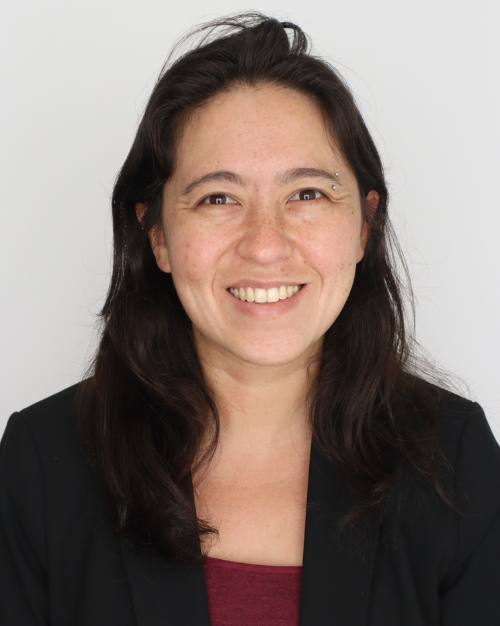
Leah Fraimow-Wong
Medical Student – University of California, San Francisco
Incoming PGY-1 resident at UCSF
Leah Fraimow-Wong is a former community health worker and graduating medical student at UCSF. She co-authored a study on patient and staff perspectives on San Francisco General’s harm reduction services, published this February in JAMA Network Open.
In this episode, we will:
- Describe what a hospital-based harm reduction program might look like
- Identify common challenges for implementing a hospital-based harm reduction program and strategies to address them
- Explain the significance of offering harm reduction to patients in a hospital setting
“Insights from the Front Line” introduces San Francisco’s first ever hospital-based harm reduction program, led by Sophie and Patty with the Addiction Care Team at Zuckerberg San Francisco General Hospital. Together, they’ll reflect on the challenges they experienced with changing culture around addiction care in the hospital, and address strategies to combat stigma and staff burnout. They will share real-life impacts of patients who participated in their program, and explore exciting new projects for hospital-based harm reduction in the near future!
Evaluation
Thank you for listening to Episode 3 of the “Harm Reduction: Compassionate Care for People Who Use Drugs” Podcast Series. Please complete SAMHSA’s required Training and Technical Assistance (TTA) GPRA Post-Event Form. This form will gather participant demographic information and satisfaction with the event. Responses are anonymous.
Presenters
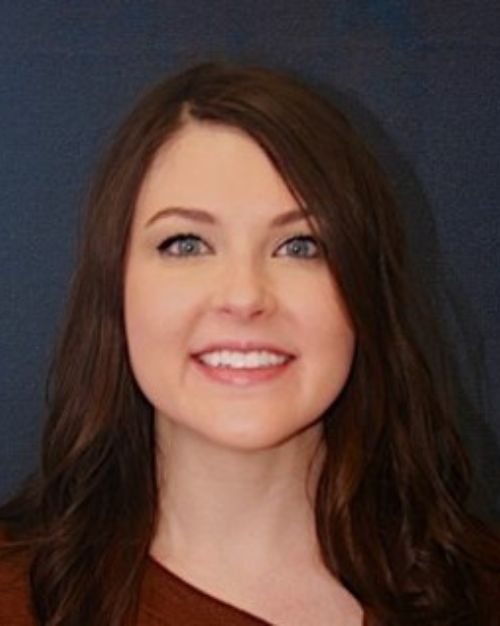
Tessa Rife-Pennington, PharmD, BCGP
Harm Reduction Coordinator
Clinical Pharmacist Practitioner
San Francisco Veterans Affairs Health Care System
Tessa Rife-Pennington, PharmD, BCGP, pronouns she/her, is a clinical pharmacist practitioner at the San Francisco Veterans Affairs Health Care System and Volunteer Clinical Assistant Professor at the University of California, San Francisco, School of Pharmacy. Since graduating from the West Virginia University School of Pharmacy in 2010, she has worked in a variety of roles within the Veterans Health Administration, including medication therapy management, academic detailing, and pain and opioid stewardship. She currently serves as Harm Reduction Coordinator and is passionate about expanding access to harm reduction resources for Veterans with lived or living experience of homelessness and drug use. Her work is driven by and aims to reduce the increasing rates of fentanyl-involved overdose deaths among both Veterans and community members in Northern California.

Andrew (Andie) Ruggles, LCSW
San Francisco Veterans Affairs Downtown Clinic
Andie Ruggles, LCSW, pronouns he/they, is a medical social worker at the San Francisco Veterans Affairs Health Care System. With 15 years of social work experience, 9 years post-Master’s degree, Andie finds passion in working both clinically and administratively advocating for marginalized populations. A proud Neurodivergent human with nearly 15 years of personal sobriety from opiate use, Andie is a current Doctoral student that utilizes a trauma-informed perspective to promote diversity and equity in their daily life. As a member of the Harm Reduction Committee, Andie works under Tessa Rife-Pennington to provide education and support to staff acting as Harm Reduction Advocates within each clinic of the Health Care System. Andie dedicates himself to education and advocacy within anti-racism, implicit bias, trauma-informed care, substance use and homelessness, intimate partner violence awareness, barriers to client care, and non-abrahamic religious inclusion and awareness.
Host

Beth Dinges, PharmD
Harm Reduction Coordinator
Clinical Pharmacist Practitioner
VA Illiana Healthcare System
Beth Dinges, PharmD, pronouns she/her, has been a clinical pharmacist at various Veteran Affair facilities over the past 20 years. She currently works as a harm reduction coordinator at Illiana Veteran Affairs Healthcare system in Danville, IL. Here, she piloted the VA’s first syringe program in 2017 which was a Shark Tank Winner and a model for many VA facilities. She is a 2024 Innovation Fellow with a mission to incorporate Veterans with lived/living experience into harm reduction programming. Overall, she is committed to creating a more engaging and less stigmatizing healthcare environment for people who use drugs.
In this episode, we will:
- Summarize the evidence for harm reduction supply distribution via vending machines
- Describe the iterative quality improvement project results of a California Veterans Affairs Health Care System Harm Reduction Program which led to program expansion via vending machines
- Describe harm reduction vending machine implementation strategies, successes, and challenges for a California Veterans Affairs Health Care System Harm Reduction Program
- Discuss the critical importance of including Veterans in program development, implementation, and improvement
- Discuss strategies for incorporating multidisciplinary team members and learners in harm reduction vending machine education, Veteran registration for access, and resource offering
- List priorities for future harm reduction vending machine research
Harm reduction strategies, including syringe services programs, overdose education, and naloxone, are evidence-based practices which decrease the negative consequences of drug use; yet many barriers limit access and participant engagement. Evidence suggests harm reduction vending machines (HRVMs) are a successful strategy to address many barriers. In this podcast, presenters from the San Francisco Veterans Affairs Health Care System Harm Reduction Program will discuss how and why their program chose to implement HRVMs, how the machines work to increase Veteran access to resources, key implementation strategies and lessons learned, opportunities to include multidisciplinary team members and learners, and ongoing future research.
Evaluation
Thank you for listening to Episode 4 of the “Harm Reduction: Compassionate Care for People Who Use Drugs” Podcast Series. Please complete SAMHSA’s required Training and Technical Assistance (TTA) GPRA Post-Event Form. This form will gather participant demographic information and satisfaction with the event. Responses are anonymous.
Presenters
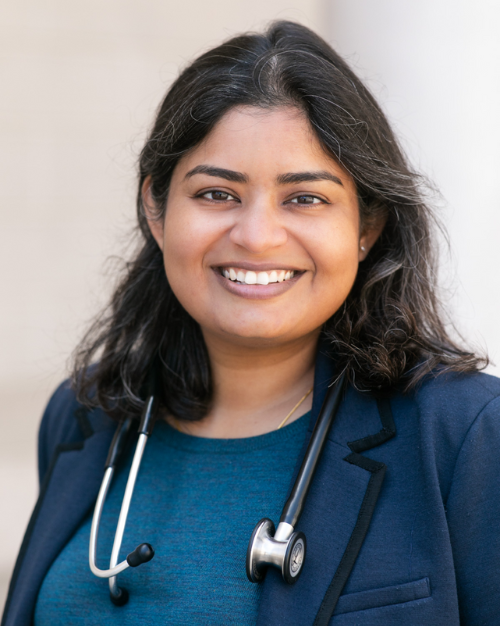
Tanya Majumder, MD, MS
Physician with the San Francisco Department of Public Health
Tanya Majumder, MD is a primary care physician with the SF DPH WPIC Street Medicine, Shelter Health, and Urgent Care and the lead physician for the WPIC Managed Alcohol Program and Sobering Center. She completed medical school and her master’s in health and medical sciences at the Joint Medical Program between Berkeley and UCSF before attending residency in Internal Medicine-Primary Care at the Yale Primary Care program. She has greatly enjoyed being part of the Whole Person Integrated Care team for the past 4 ½ years.
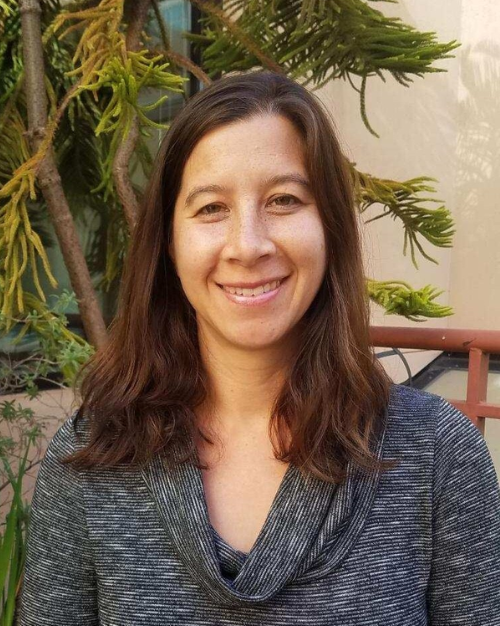
Alice Moughamian, RN, CNS
Nurse Manager with the San Francisco Department of Public Health
Alice Moughamian serves as Nurse Manager of the Managed Alcohol Program and the San Francisco Sobering Center for the San Francisco Department of Public Health. In addition to this role, she was Nurse Manager and Program Director of the Medical Respite Program as well as nursing services in permanent supportive housing before devoting full time to Managed Alcohol and Sobering. She completed the CHCF Healthcare Leadership Fellowship in 2020. Alice has also served as Chair of the National Healthcare for the Homeless Council’s Respite Care Providers Network and helped develop national standards for Medical Respite care. She attended nursing school at Johns Hopkins University and worked as a floor nurse at UCSF Medical Center for 4 years while she did her clinical studies for her masters degree at UCSF at Zuckerberg San Francisco General Hospital’s Positive Health Program. Alice served as a Peace Corps volunteer in the Dominican Republic for 3 years between college and nursing school. When not working, Alice’s greatest joy is going on new adventures and spending time with her husband and two children.
Host
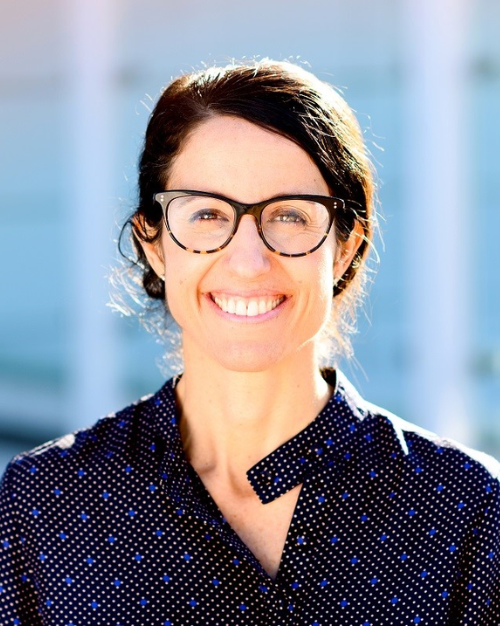
Soraya Azari, MD
San Francisco Department of Public Health
Soraya Azari MD is an internist and addiction medicine doctor based in San Francisco. She currently works for the San Francisco Department of Public Health as a primary care doctor and addiction medicine specialist. She is a volunteer professor at UCSF and assists with the training of the addiction medicine fellows. She is interested in people with substance use disorders and chronic pain, medical morbidities related to substance use and collaboration across specialties, and graduate medical education.
In this episode, we will:
- Identify at least 3 ways that Managed Alcohol Programs fulfill harm reduction tenets.
- Understand at least 3 different components that are needed for a Managed Alcohol Program.
- Process management of at least 2 different ethical challenges that may arise from providing patients with alcohol.
Research suggests that abstinence-based programs are not necessary for all individuals with alcohol use disorder, yet harm reduction strategies for alcohol use disorder have yet to gain prominence as treatment options. Managed Alcohol Programs offer an opportunity to improve the health, legal, and social matters through a harm reduction lens. The San Francisco Department of Public Health’s Managed Alcohol Program is the first of its kind in the country. In this podcast, we will discuss the theory behind a Managed Alcohol Program, discuss the history of how our program came to be, and detail the different elements of our program.
Evaluation
Thank you for listening to Episode 5 of the “Harm Reduction: Compassionate Care for People Who Use Drugs” Podcast Series. Please complete SAMHSA’s required Training and Technical Assistance (TTA) GPRA Post-Event Form. This form will gather participant demographic information and satisfaction with the event. Responses are anonymous.
Sponsored by:
Funding for this initiative was made possible by cooperative agreement nos. 1H79TI086770 and 1H79TI086771-01 from SAMHSA. The views expressed in written conference materials or publications and by speakers and moderators do not necessarily reflect the official policies of the Department of Health and Human Services; nor does mention of trade names, commercial practices, or organizations imply endorsement by the U.S. Government.
Presenters
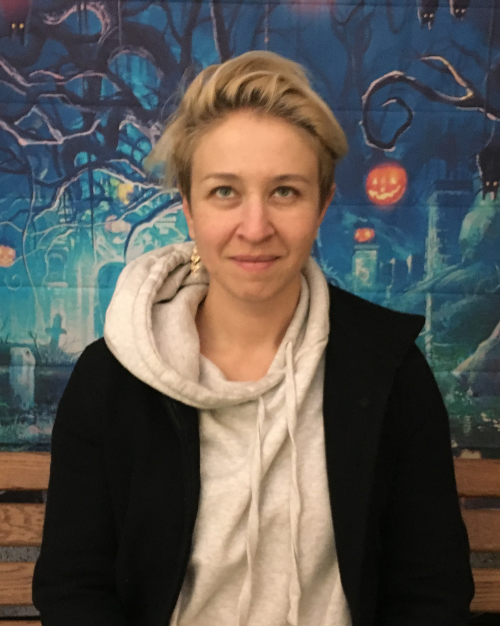
Leah Warner, NP, MPH
Street Medicine San Francisco Department of Public Health
Leah Warner is a Nurse Practitioner in Whole Person Integrated Care on the Street Medicine Team. Since 2014, she has worked on the Street Medicine Team providing primary care services for San Francisco’s patients experiencing homelessness. Other interests include understanding and improving homeless services through a lens of gender, pregnancy and substance use, intimate partnerships in the setting of substance use, and trans care at the intersection of substance use and homelessness. Prior to become a clinician Leah worked in Public Health in the field of reproductive justice.
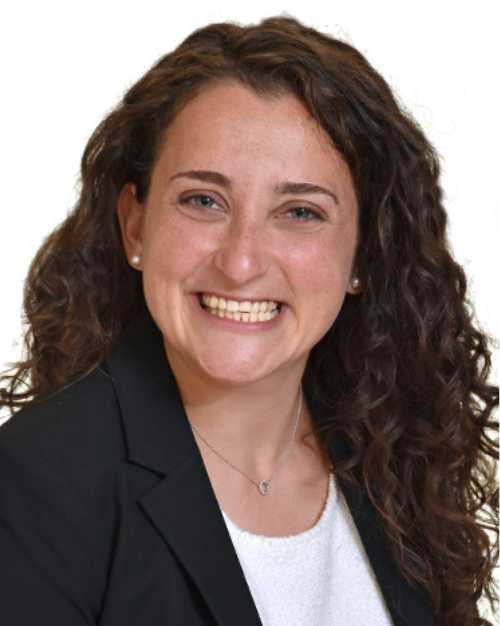
Simone Vais, MD
UCSF Department of Family and Community Medicine
Simone Vais is a family medicine physician, her clinical focus is perinatal substance use, with a particular interest in the postpartum period, and the gaps in care between pregnancy and primary care based services. She works as a primary care physician at the Family Health Center and in the Team Lily Postpartum Clinic, a family based clinic for postpartum people and their infants impacted by substance use disorders.
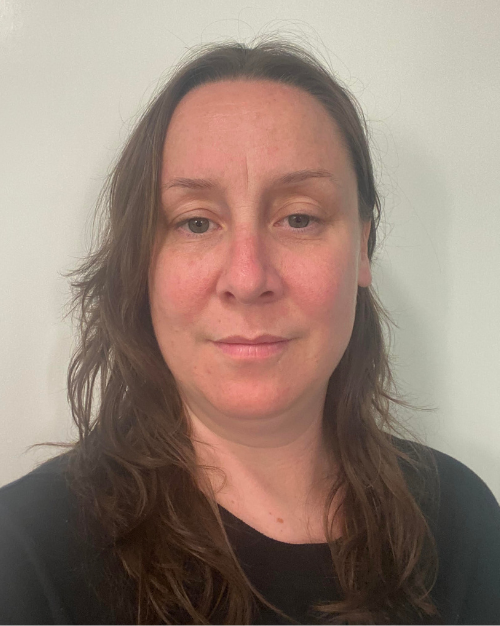
Jamie Lang
New Beginnings Case Manager, Homeless Prenatal Program
Jamie Lang is currently employed by Homeless Prenatal Program as a case manager supporting people in pregnancy and postpartum who are experiencing homelessness, substance use and mental health challenges. She is also a passionate advocate with Homeless Emergency Service Providers Association (HESPA), Treatment on Demand Coalition, and Housing Justice. She is formerly chronically homeless, a former drug user and used substances and found recovery in pregnancy. Most importantly, a dedicated mother of a 6-year-old.
In this episode, we will:
- Enumerate the harms we are scared of in pregnant and post postpartum people using drugs.
- Describe harm reduction interventions at each stage of pre-conception, pregnancy, postpartum and parenting.
- Analyze the barriers to healthcare during pregnancy, postpartum, and parenting when using drugs.
Pregnancy and the postpartum period challenge our notions of harm reduction. These stages force us to address fundamental questions: Who is our patient, and who is the primary focus of our harm reduction efforts? Is it the birthing parent, the fetus, the baby, or the entire family unit? As we navigate through two intertwined journeys—those of substance use and recovery, and pregnancy, birth, and parenting—we inevitably encounter conflicting values such as family unity, recovery, and safety. Our podcast delves into these dilemmas, exploring the tensions that arise and examining various harm reduction strategies applicable at different points along the continuum.
Evaluation
Thank you for listening to Episode 6 of the “Harm Reduction: Compassionate Care for People Who Use Drugs” Podcast Series. Please complete SAMHSA’s required Training and Technical Assistance (TTA) GPRA Post-Event Form. This form will gather participant demographic information and satisfaction with the event. Responses are anonymous.
Presenters
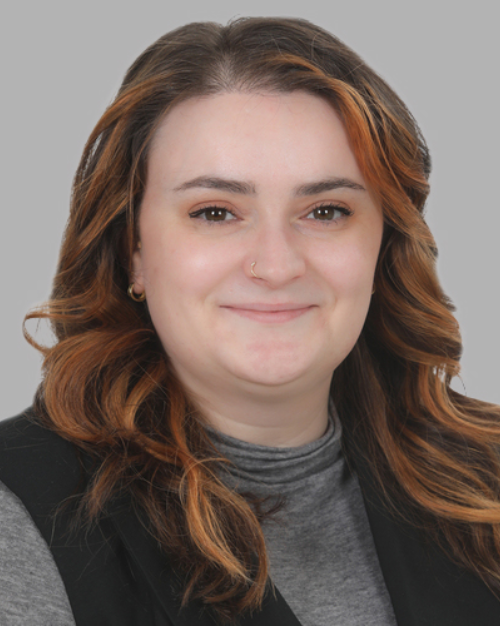
Shelby Arena
Harm Reduction Manager, MATTERS
Shelby earned her dual Bachelor of Arts Degrees in International Relations and Latin American Studies from Canisius College. She is currently pursuing her Master of Social Work at the University at Buffalo. She has worked in the health and human services sector since 2016 with experience educating and counseling people in reproductive health and justice, domestic violence and sexual assault, as well as mental health and substance use. Shelby is an advocate for harm reduction and is passionate about fostering community connections.
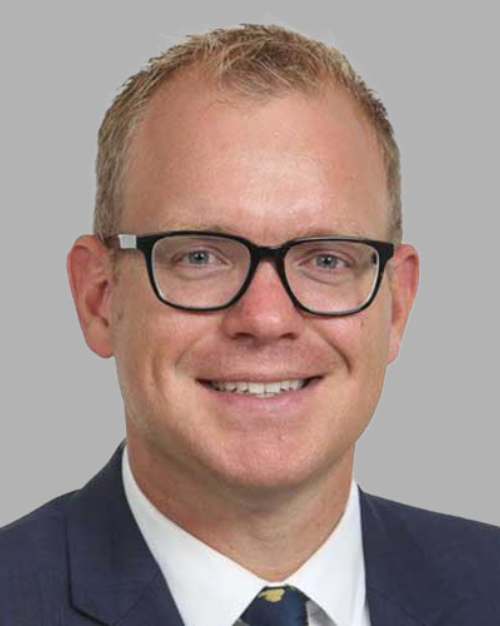
Joshua Lynch, DO, FACEP
Associate Professor of Emergency & Addiction Medicine, University at Buffalo Jacobs School of Medicine; Chief Medical Officer, MATTERS
Dr. Lynch, a Buffalo native, completed emergency medicine residency at the University at Buffalo. He is an associate professor of emergency & addiction medicine at the University at Buffalo. He is the founder and Chief Medical Officer of the MATTERS (Medication for Addiction Treatment and Electronic Referrals) program focused on prevention, education, increasing access to treatment for substance use disorder, and rapid referrals to long term substance use treatment. He has been an invited speaker to many state and national meetings on the topics of emergency medicine, EMS, and addiction medicine. He and his team has received over 20 million dollars in grant funding for various public health initiatives, in the areas of substance use disorder and hepatitis C.
Host
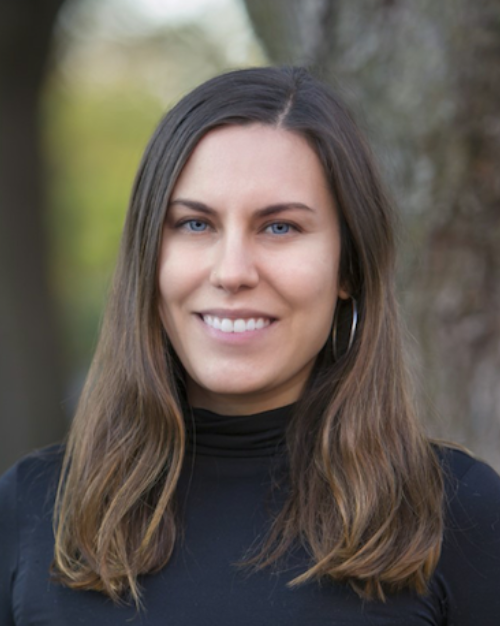
Shoshana V. Aronowitz, PhD, MSHP, FNP-BC
Assistant Professor, Department of Family and Community Health, University of Pennsylvania School of Nursing
Shoshana is a family nurse practitioner, community-engaged health services researcher, and Assistant Professor in the Department of Family and Community Health at Penn Nursing. Her research and clinical work is focused on improving access to evidence-based substance use disorder treatment and harm reduction services via innovative delivery models, including telehealth and mail-based programs.
In this episode, we will:
- Recognize the underlying factors contributing to the current overdose epidemic.
- Identify harm reduction strategies relevant to the current moment in opioid use disorder including MOUD and drug test strips.
- Examine the importance of low-barrier access to harm reduction supplies and treatment linkage in responding to the evolving opioid epidemic.
The opioid epidemic is ever-changing and with contaminants like fentanyl and xylazine in the drug supply, lethal overdose rates have been increasing yearly. Programs like MATTERS offer multidisciplinary solutions to combat obstacles in accessing harm reduction resources and treatment. MATTERS employs innovative methods such as emergency telemedicine and electronic referrals to outpatient treatment. The emphasis on low-barrier access to supplies and treatment allows MATTERS to provide accessible and stigma free services. Collaboration with various groups ensures effective outreach and advocacy for policy changes to address the needs of people who use drugs with compassion.
Evaluation
Thank you for listening to Episode 7 of the “Harm Reduction: Compassionate Care for People Who Use Drugs” Podcast Series. Please complete SAMHSA’s required Training and Technical Assistance (TTA) GPRA Post-Event Form. This form will gather participant demographic information and satisfaction with the event. Responses are anonymous.
Presenters
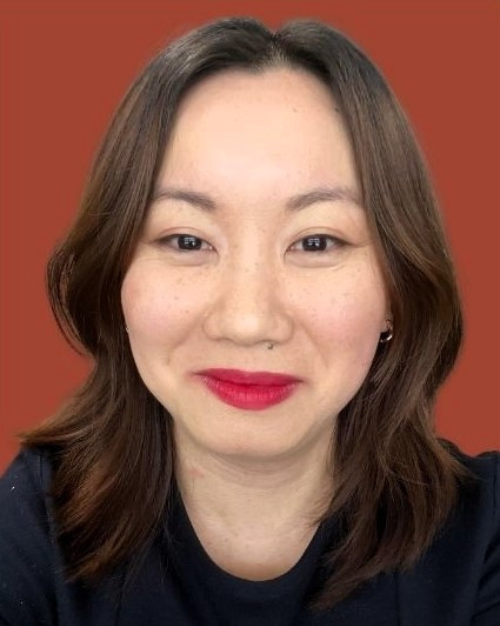
Ju Park, PhD MHS
Assistant Professor of Medicine (Research)
Director of Harm Reduction Innovation Lab
Dr. Ju Park is a substance use epidemiologist who conducts community-based research on substance use and harm reduction. Dr. Park’s team, the Harm Reduction Innovation Lab (HRIL) works to promote the health and wellbeing of people who use drugs by implementing and evaluating interventions to reduce overdose, stigma and other negative outcomes associated with drug use.
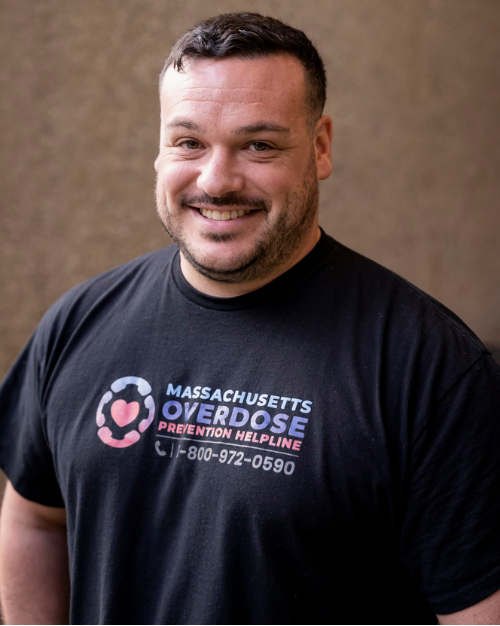
Stephen Murray, MPH, NRP
Director, Massachusetts Overdose Prevention Helpline
Harm Reduction Program Manager, Boston Medical Center
Stephen Murray, MPH, NRP, is an overdose researcher, Harm Reduction Program Manager and the Director of the Massachusetts Overdose Prevention Helpline at Boston Medical Center. He is a retired Lieutenant at a large regional ambulance service in Western Massachusetts, and had served as a first responder since 2013, having worked both as a firefighter and paramedic. He regularly shares for a national audience about his lived experience as a person who used drugs and overdose survivor. Stephen provides expert technical assistance around the topics of overdose prevention, emergency medical services and harm reduction to a variety of organizations, county and state governments across the country.
Host

Ricky N. Bluthenthal, PhD
Distinguished Professor of Population and Public Health Sciences, Keck School of Medicine, University of Southern California
Associate Director of Institute of Addiction Sciences, USC
Ricky N. Bluthenthal, Ph.D. is the Associate Dean for Social Justice and Vice Chair for Diversity, Equity and Inclusion and a Distinguished Professor in the Department of Population and Public Health Sciences in the Keck School of Medicine at the University of Southern California. He received a BA in History and Sociology from the University of California Santa Cruz and a MA and PhD in sociology from the University of California Berkeley. His research has established the effectiveness of syringe exchange programs, tested novel interventions and strategies to reduce HIV risk and improve HIV testing among injection drug users and men who have sex with men, documented how community conditions contribute to health disparities, and examined health policy implementation.
In this episode, we will:
- Understand the prevalence and risks associated with solitary drug use, particularly in relation to fatal overdoses, and recognize the importance of real-time monitoring and rapid response systems in mitigating these risks.
- Explore the rationale behind remotely supervised drug use through overdose prevention technologies and hotlines, including the role of these interventions in saving lives and reducing other drug related harms.
- Evaluate real-world examples and case studies from the United States to illustrate the effectiveness and impact of overdose prevention programs utilizing remote supervision and rapid response strategies.
Most people who experience a fatal overdose are alone at the time of use and death (solitary drug use). Real-time monitoring of drug use events and rapid connection to a peer responder or Emergency Medical Services could save lives if widely available. This podcast will describe the rationale for remotely supervised drug use via overdose prevention technologies and hotlines and provide examples for how these programs are working in the United States.
Evaluation
Thank you for listening to Episode 8 of the “Harm Reduction: Compassionate Care for People Who Use Drugs” Podcast Series. Please complete SAMHSA’s required Training and Technical Assistance (TTA) GPRA Post-Event Form. This form will gather participant demographic information and satisfaction with the event. Responses are anonymous.
Sponsored by:
Funding for this initiative was made possible by cooperative agreement no. 1H79TI086770 from SAMHSA. The views expressed in written conference materials or publications and by speakers and moderators do not necessarily reflect the official policies of the Department of Health and Human Services; nor does mention of trade names, commercial practices, or organizations imply endorsement by the U.S. Government.
AMERSA People & Passion
In September 2021, AMERSA launched a 10-episode podcast series, AMERSA People & Passion, that explores the world of substance use education, research, care and policy. The podcast is sponsored by the ATTC Network and hosted by AMERSA then-Executive Director, Doreen Baeder (who retired in December 2021). Seven of the episodes feature subject matter experts across a variety of topics. The remaining three episodes are focused around “legacy interviews” with Richard Saitz, MD, MPH; Marianne Marcus, EdD, RN; and Sidney H. Schnoll, MD, PhD — who all shared their experiences as AMERSA members and discussed the history of the organization.

Read more about the series, and listen to episodes here.

